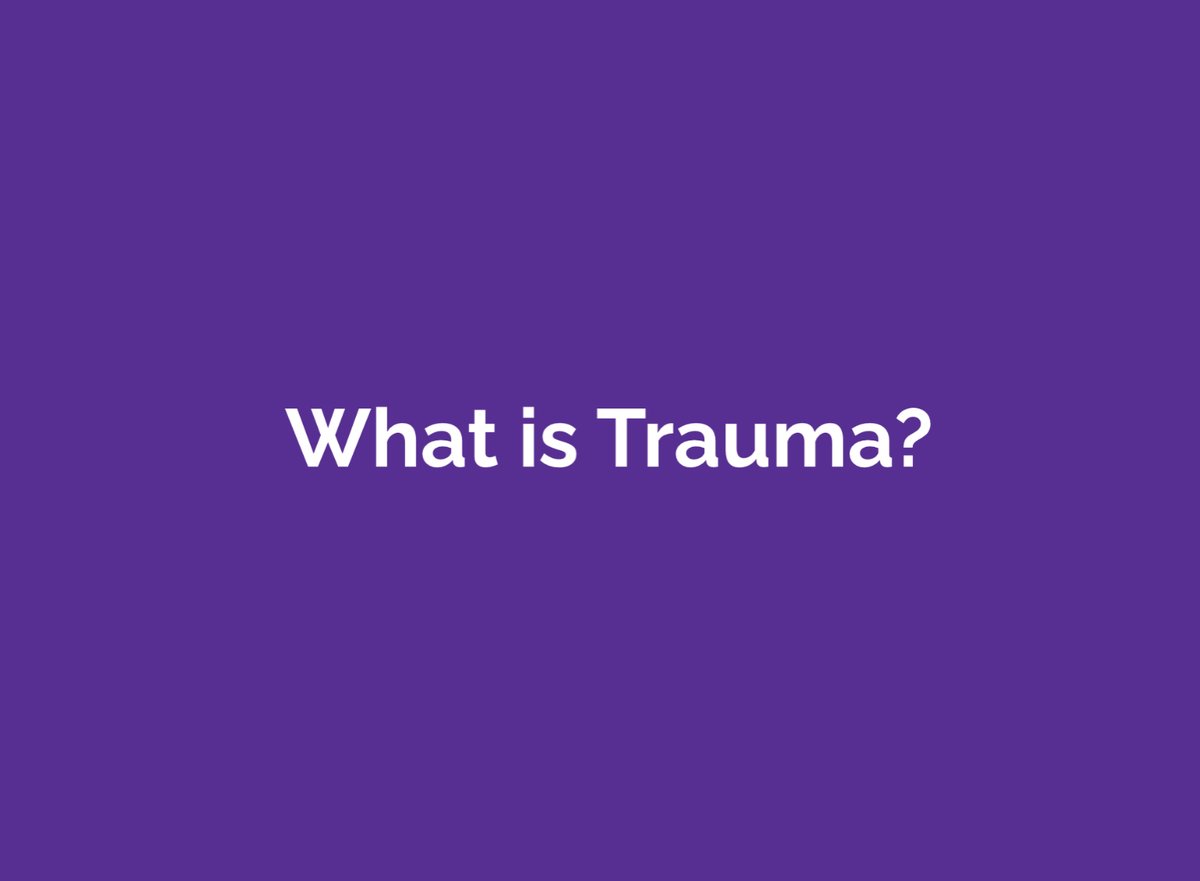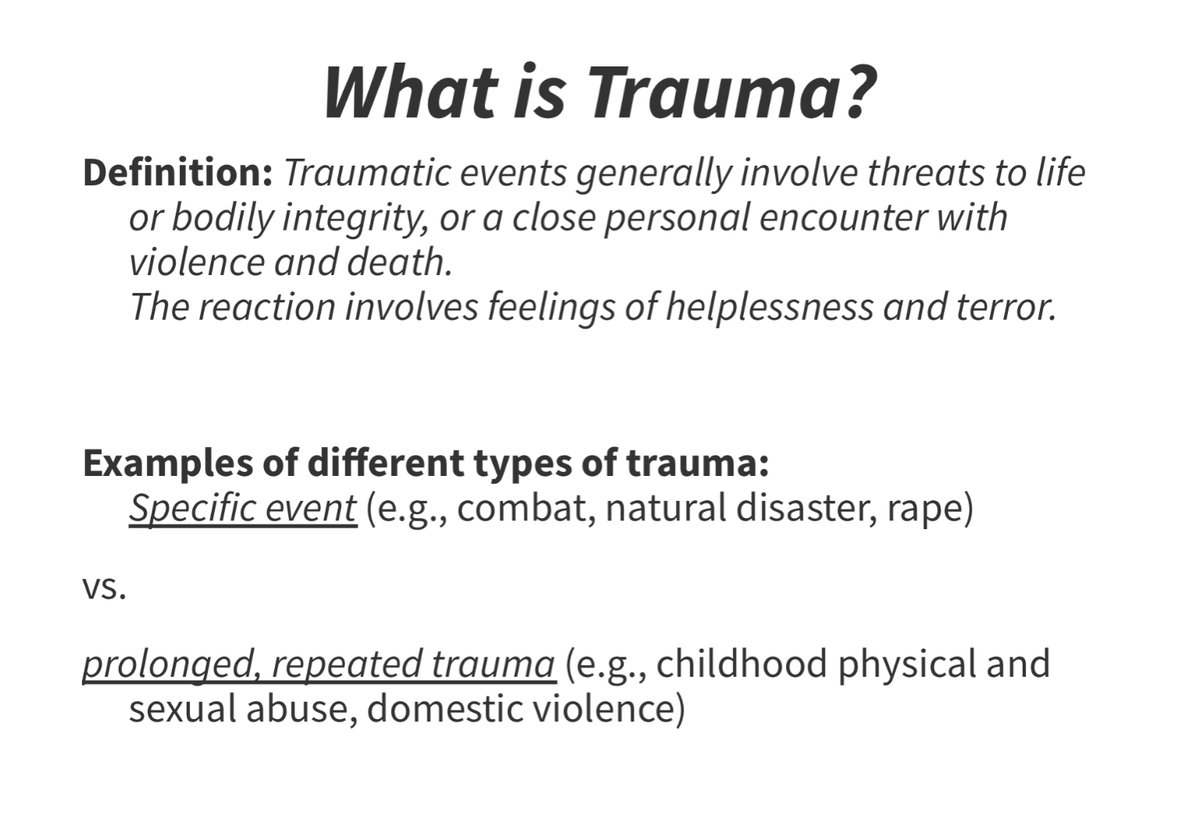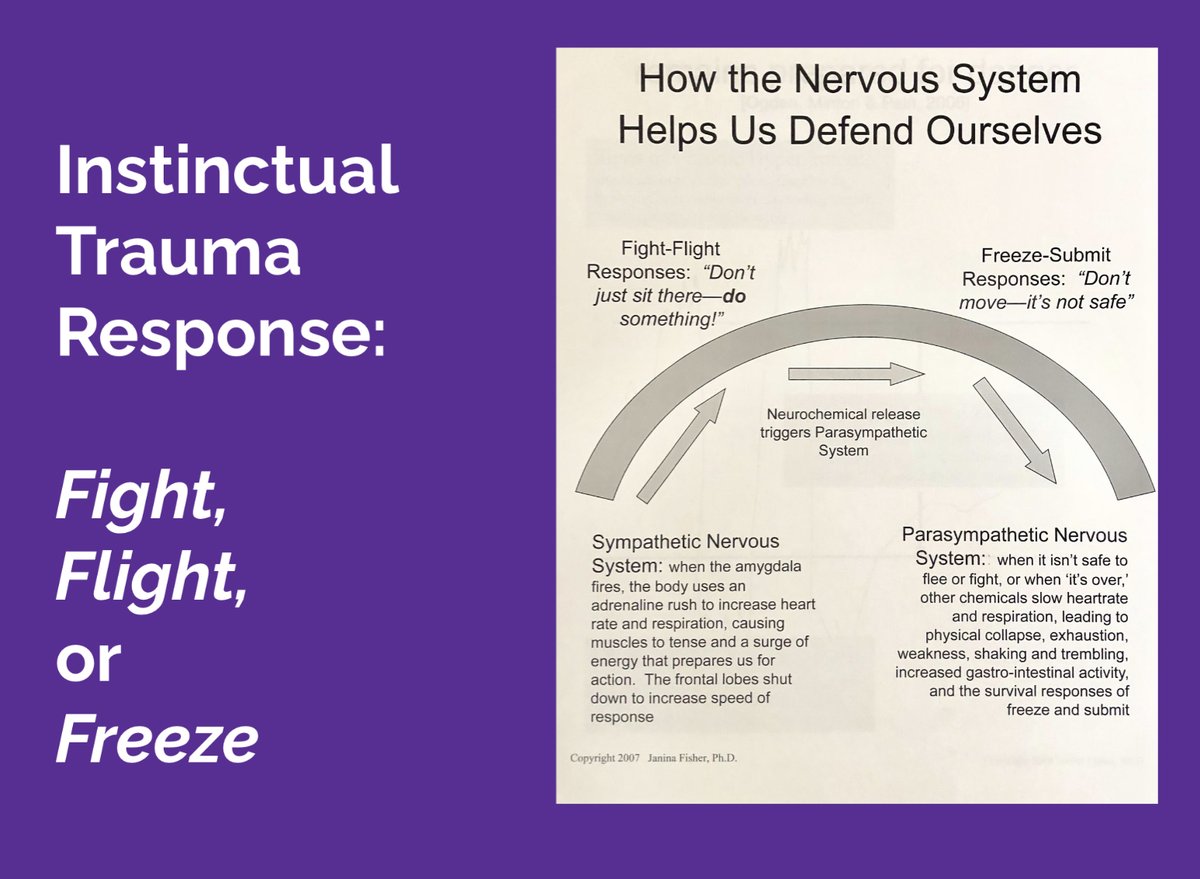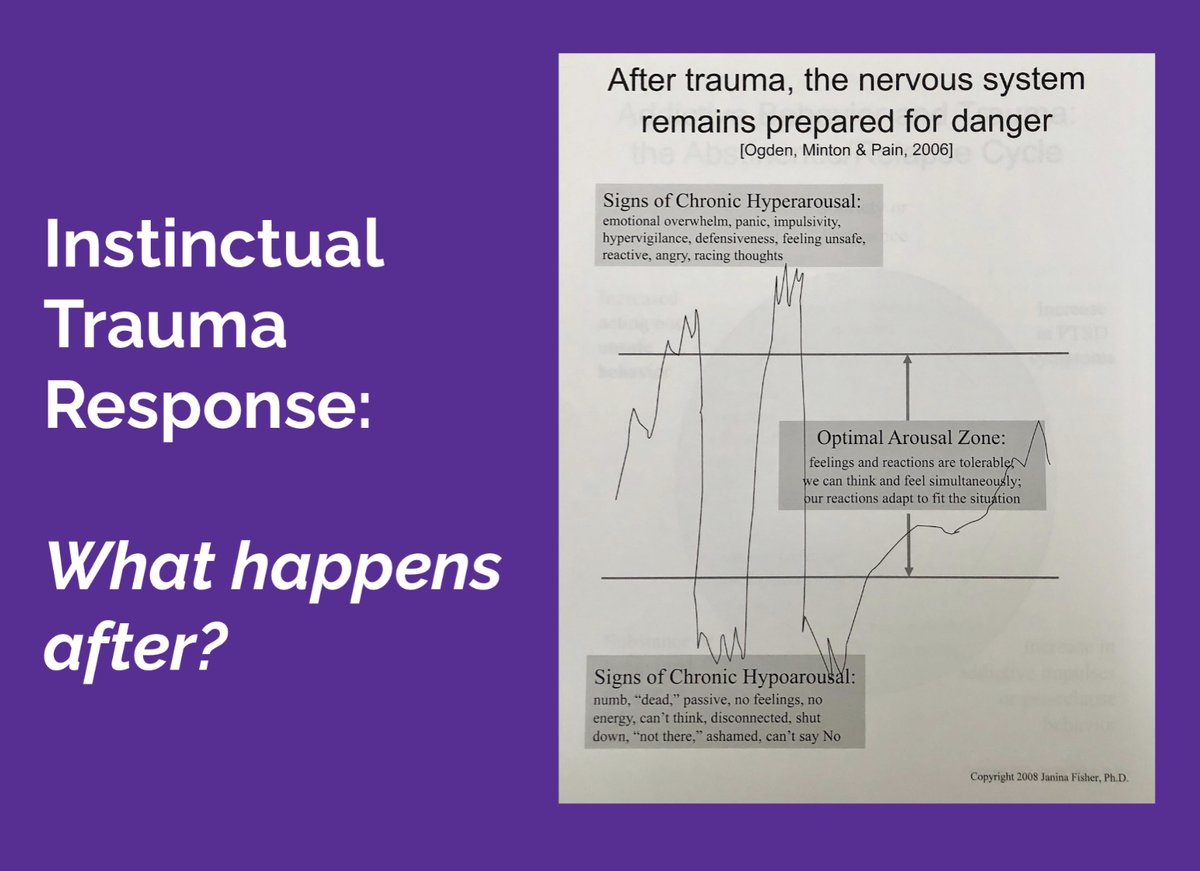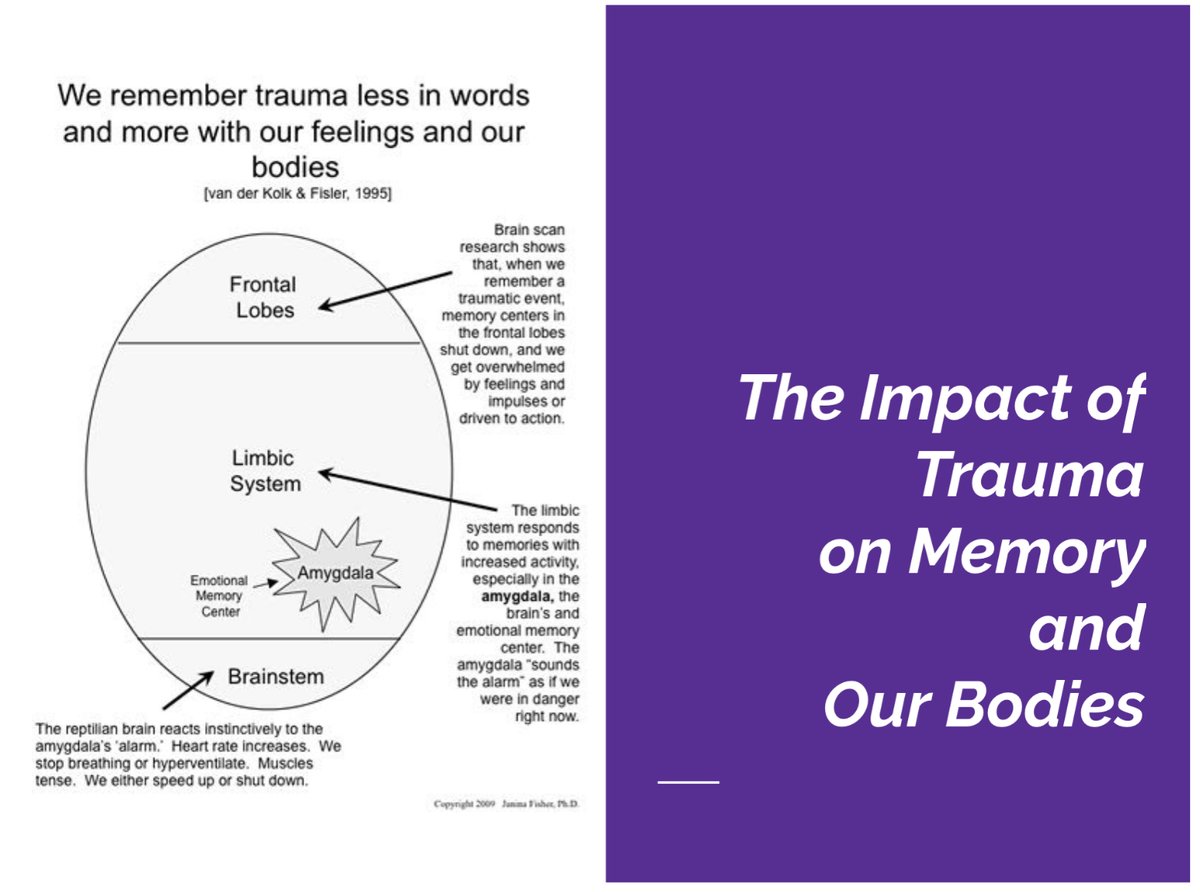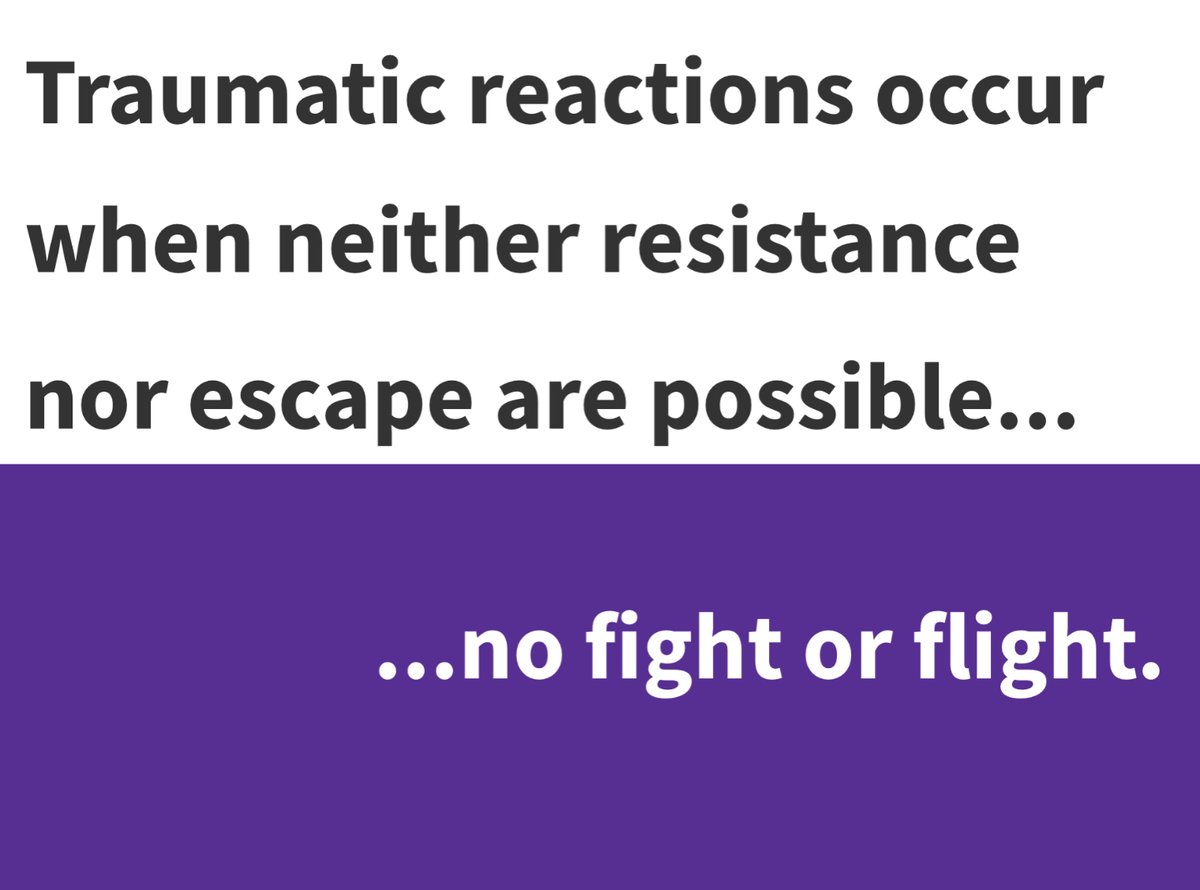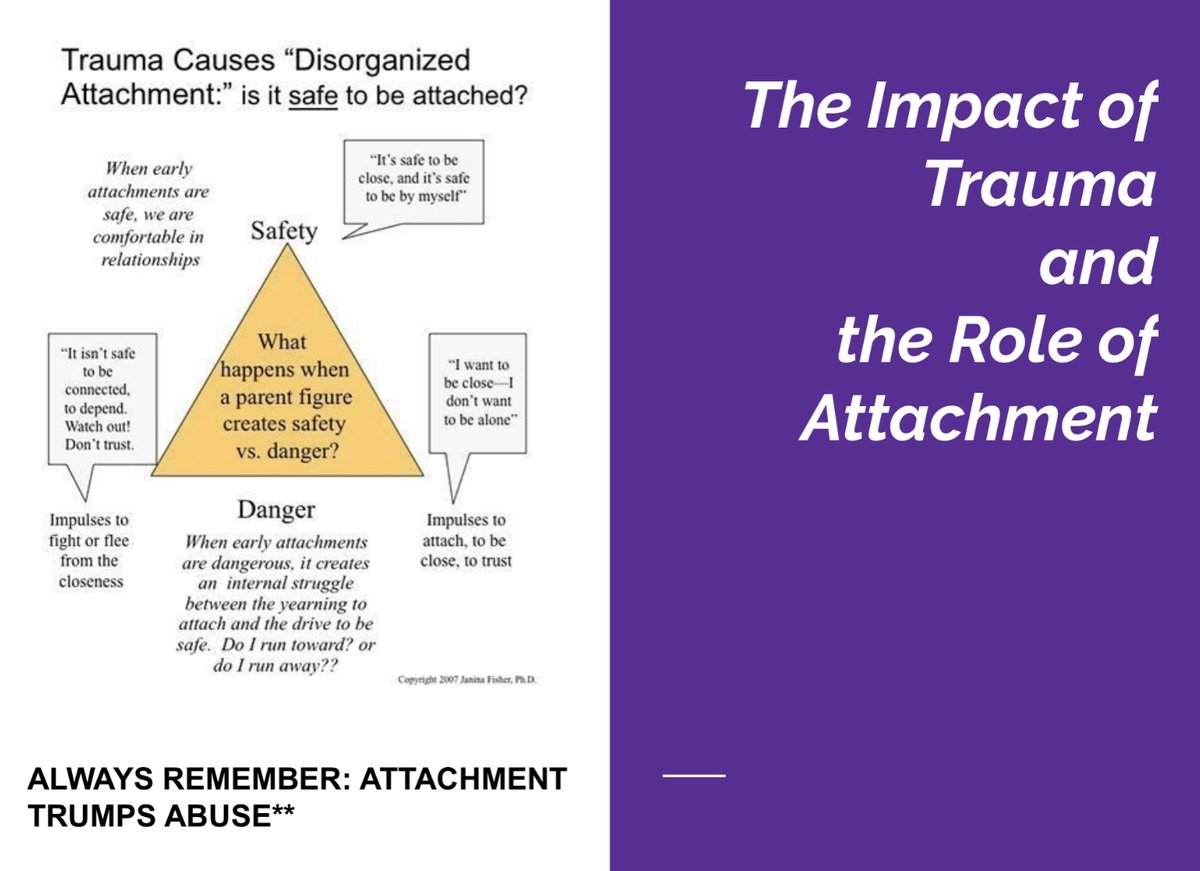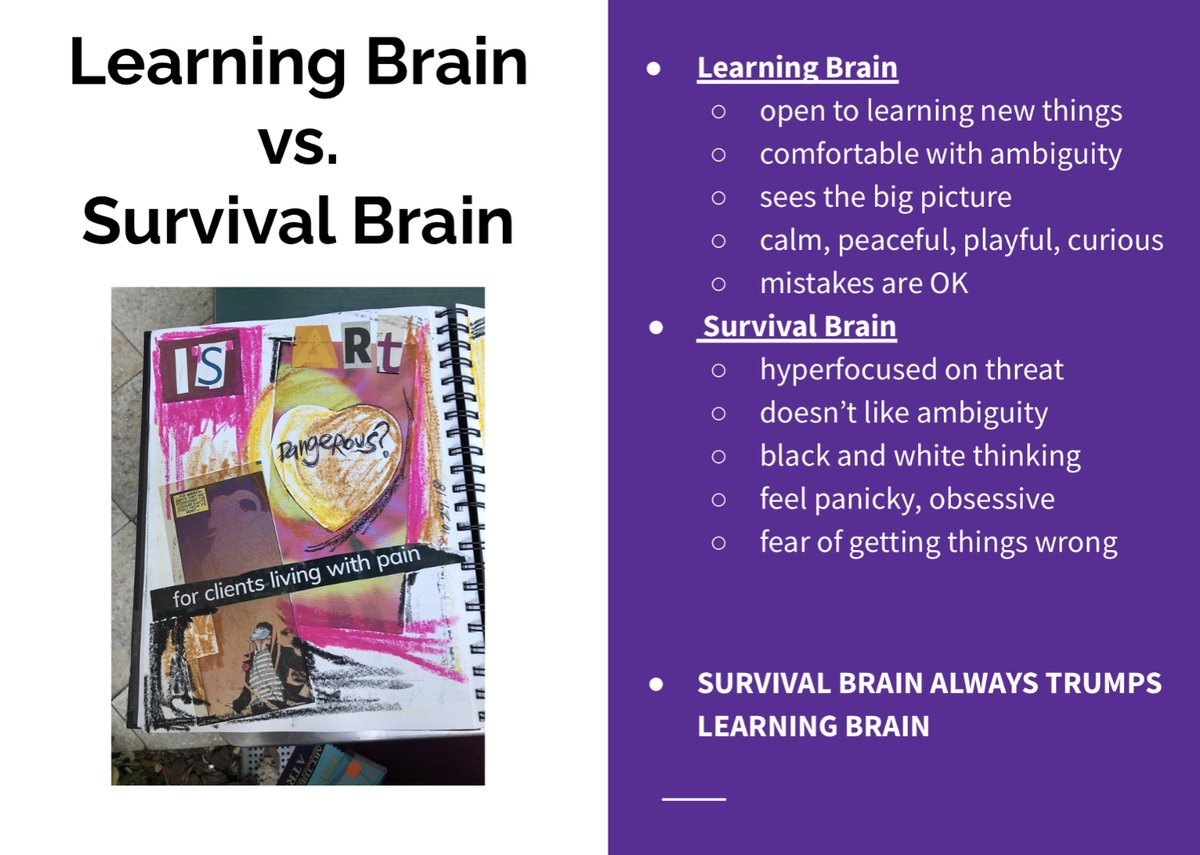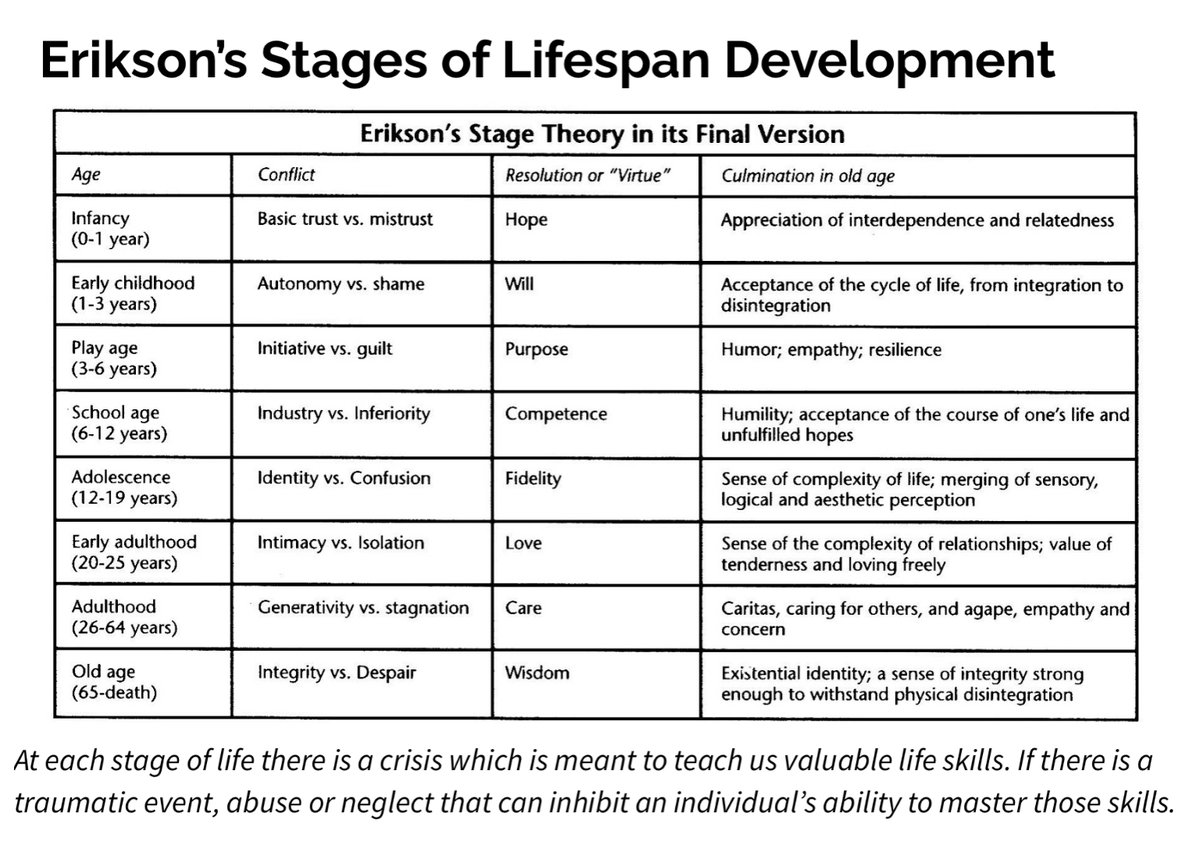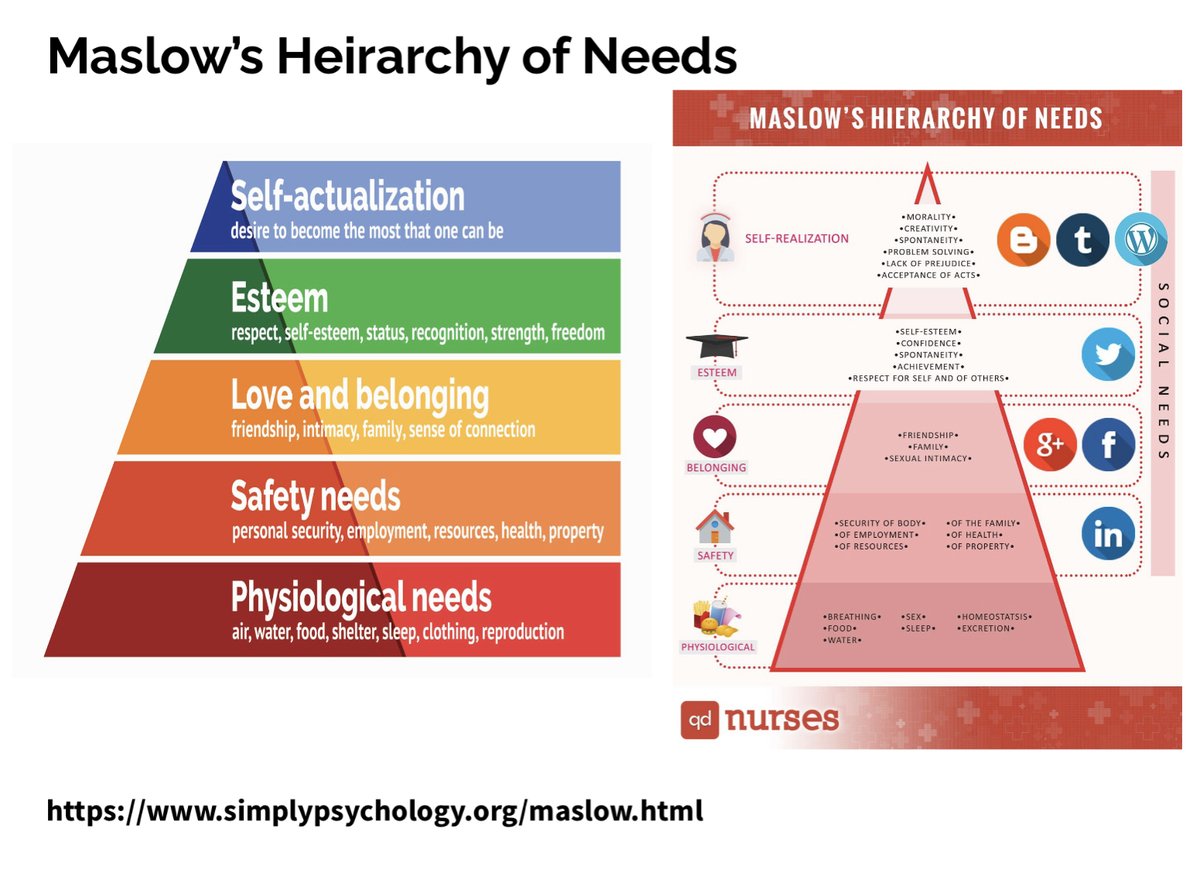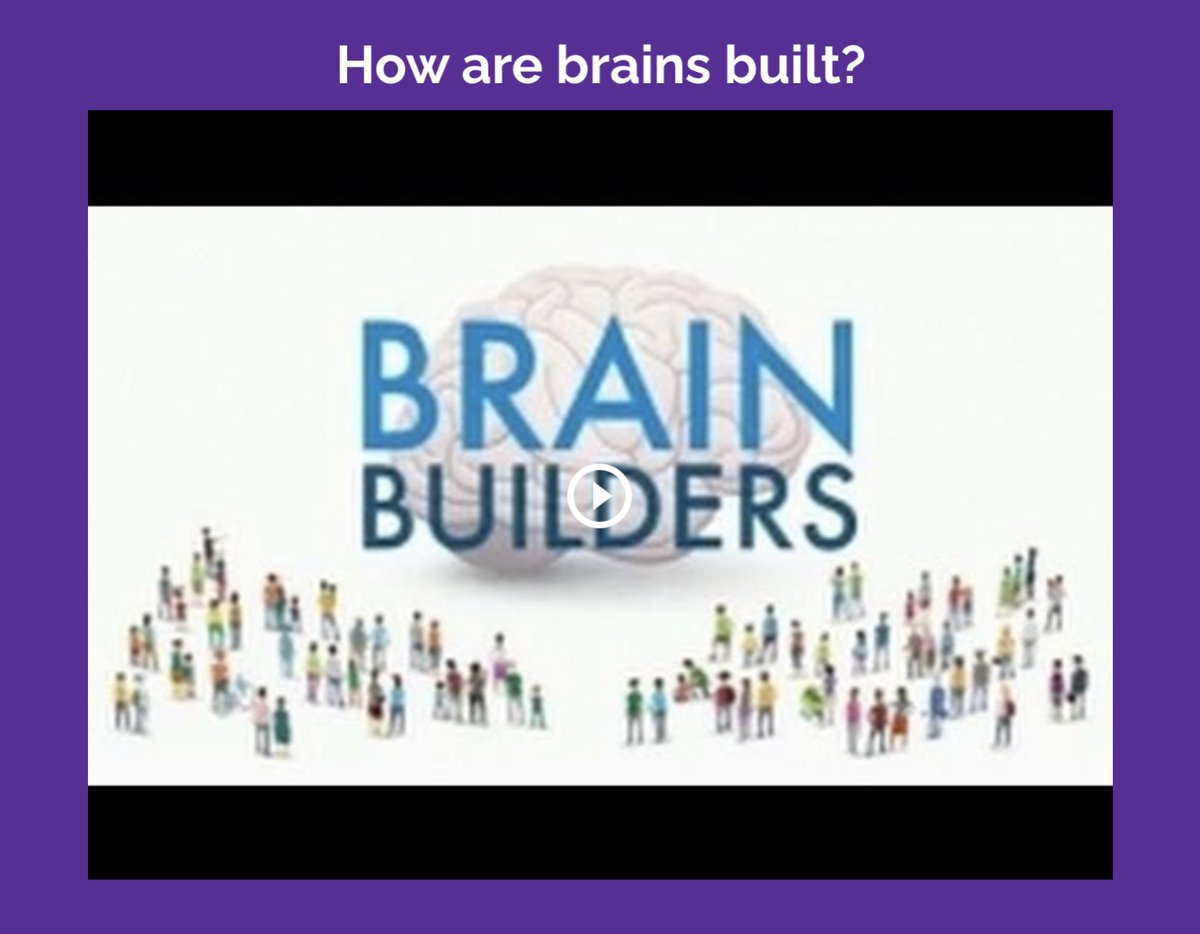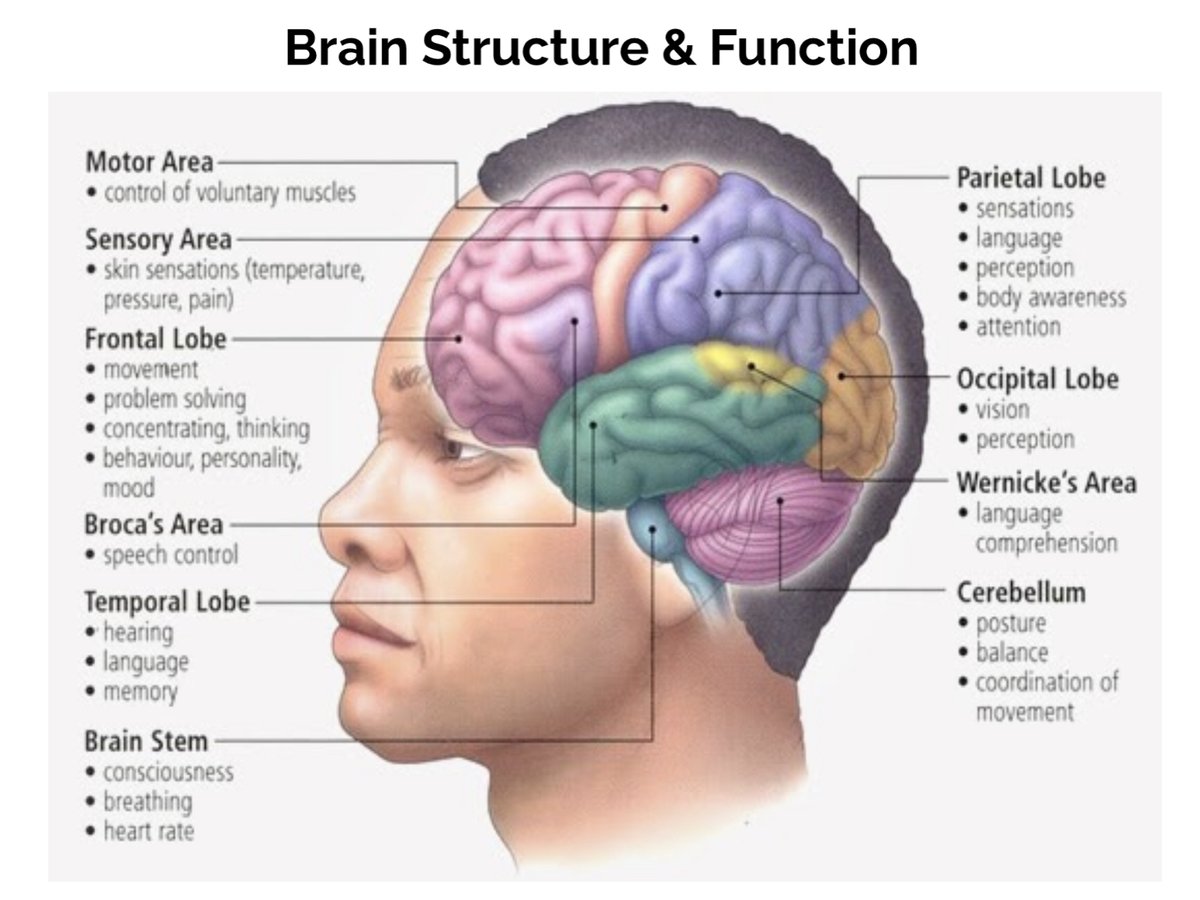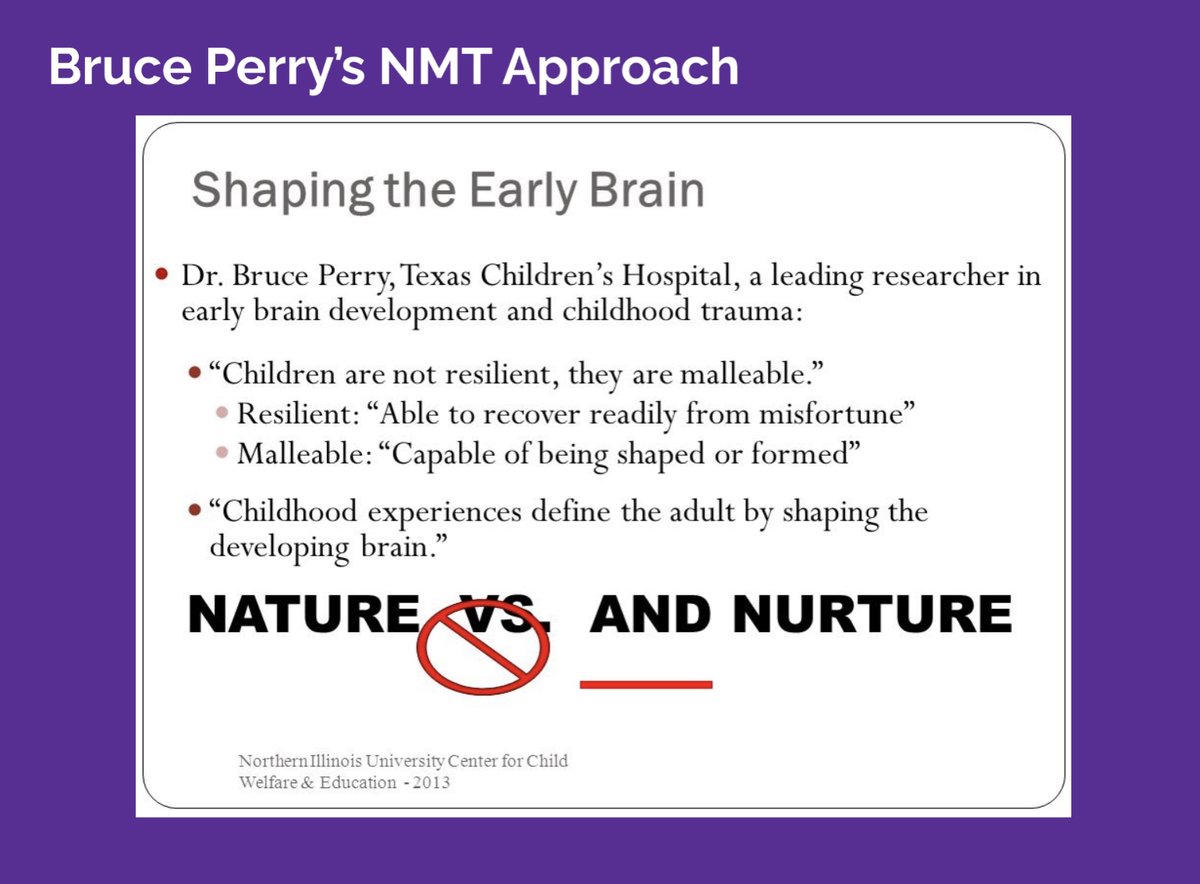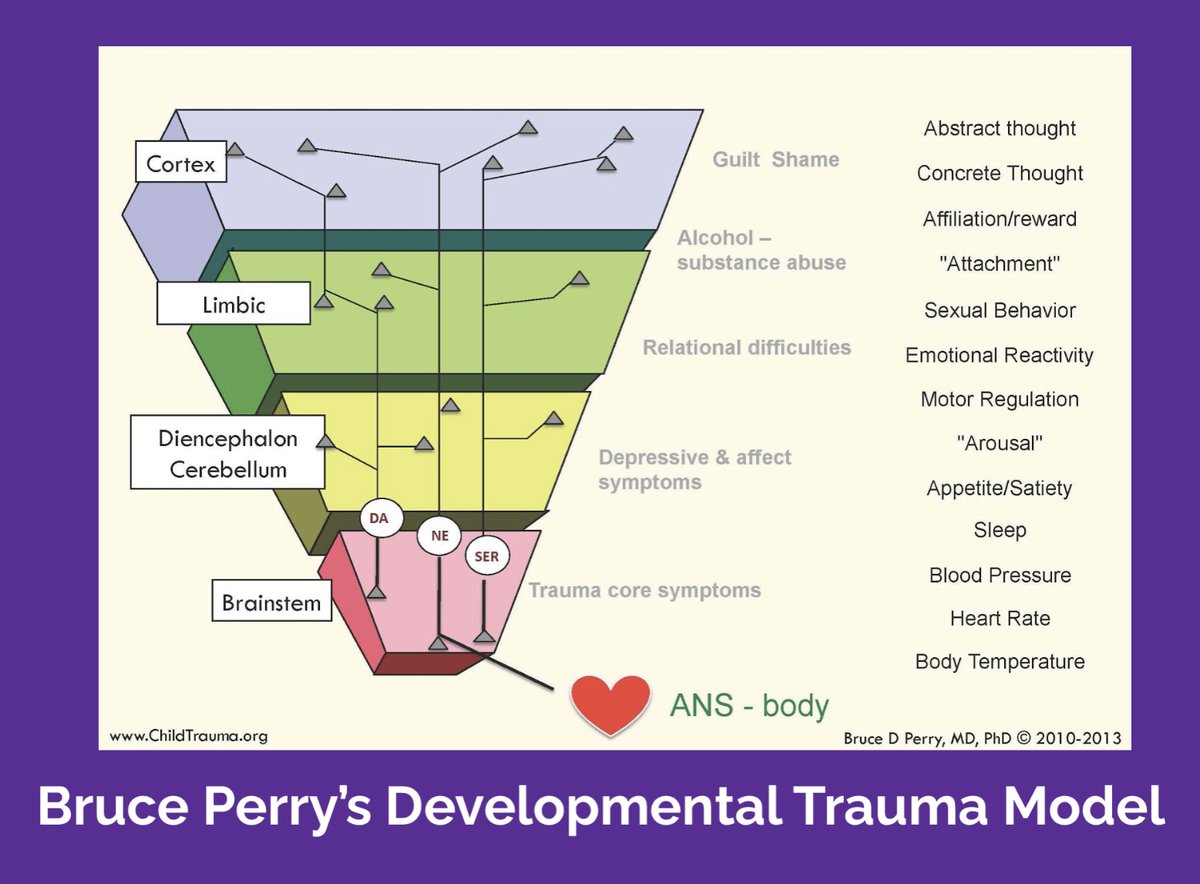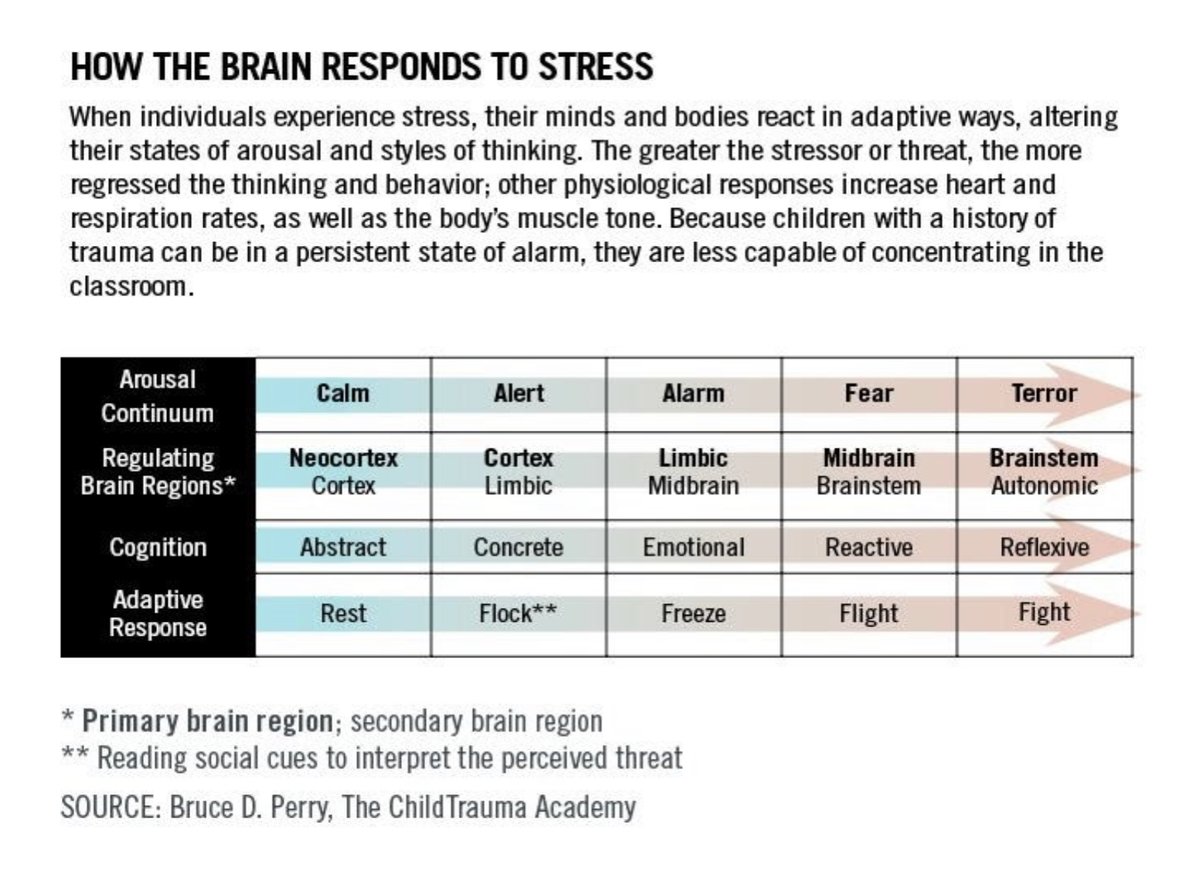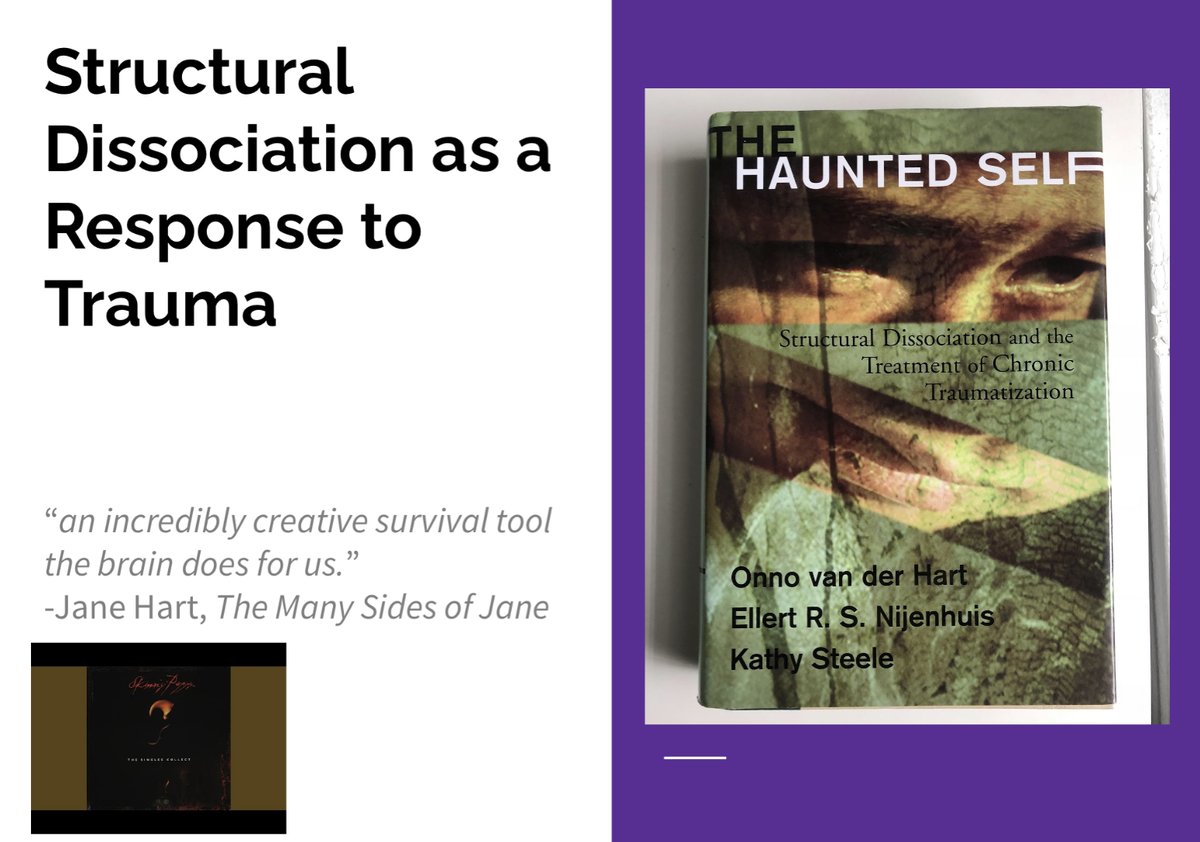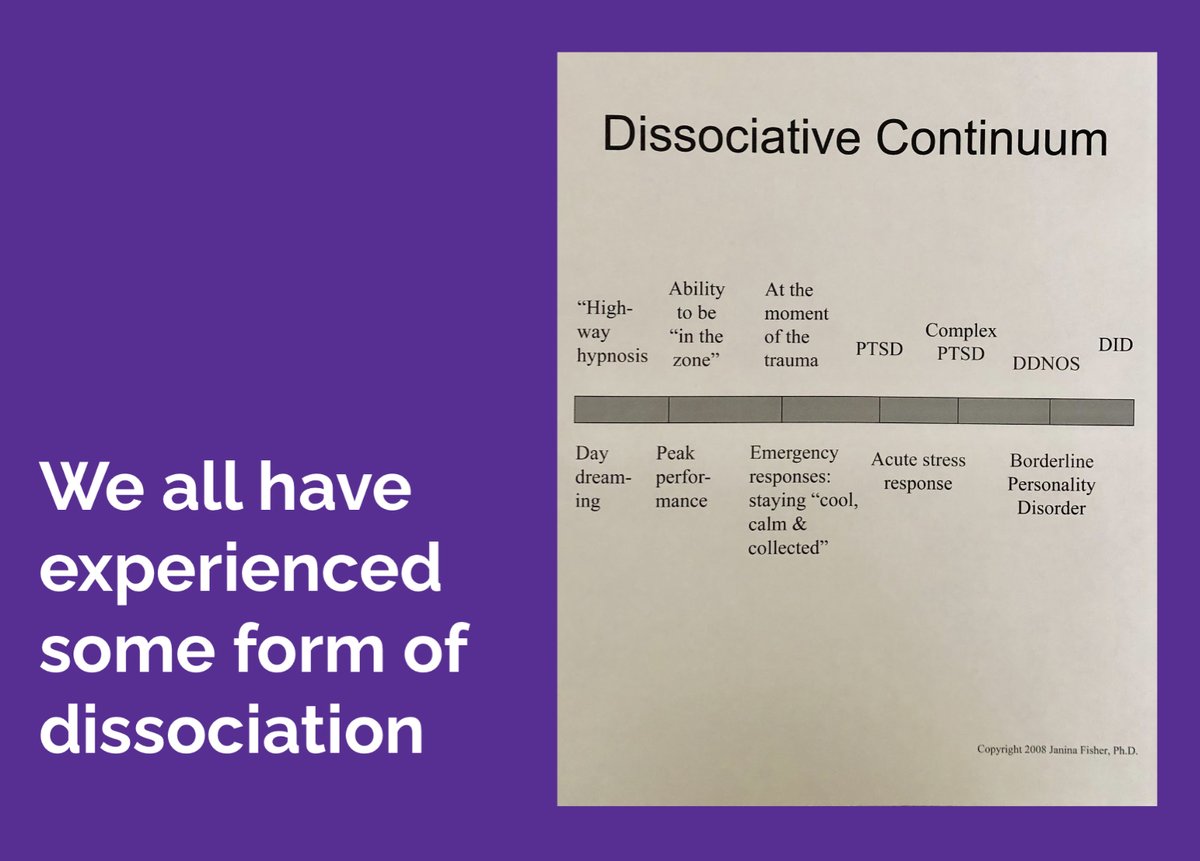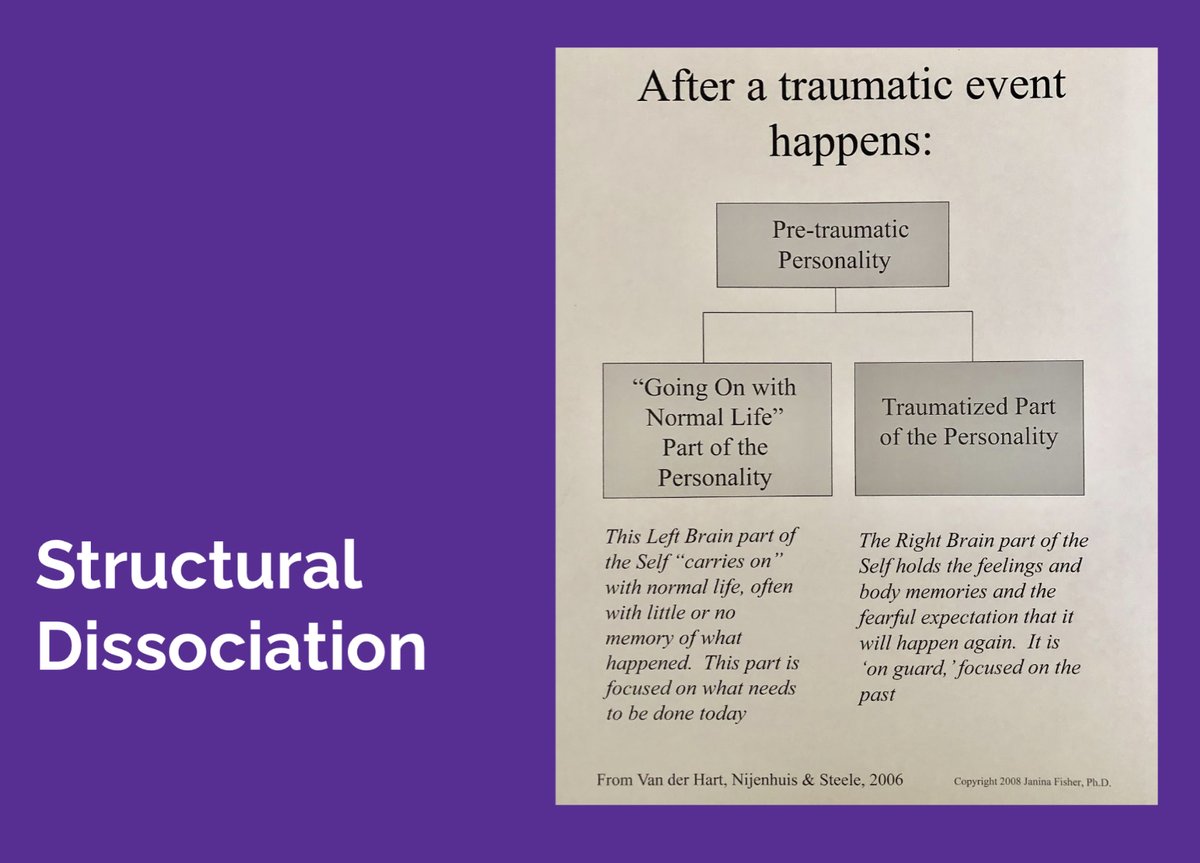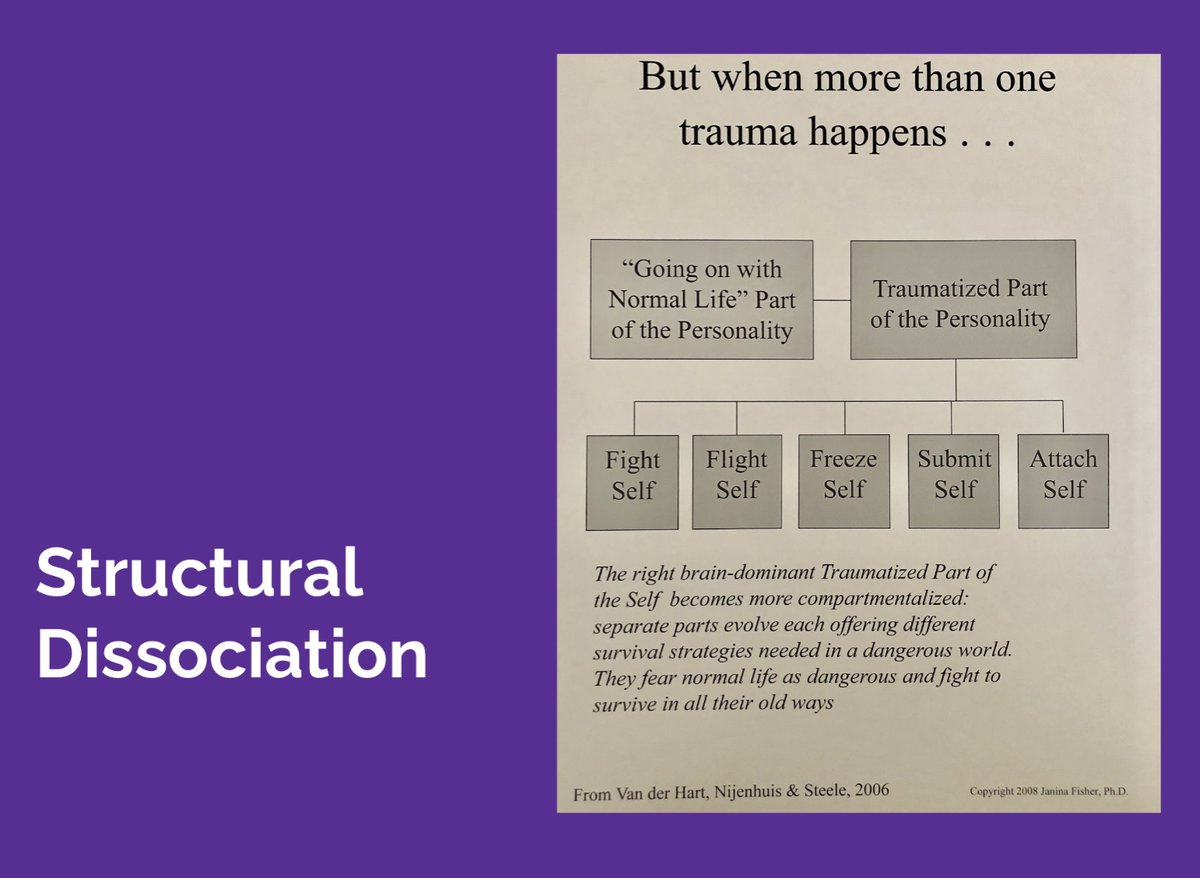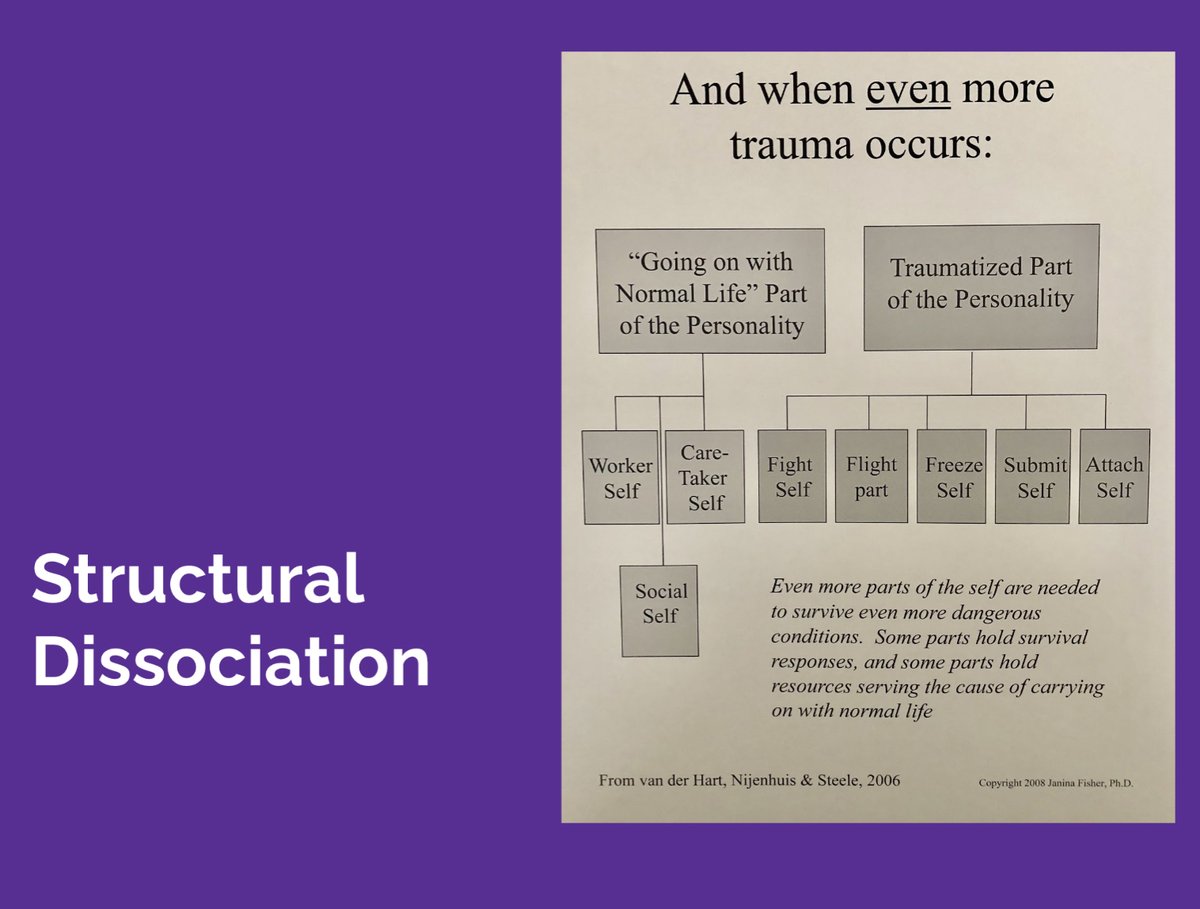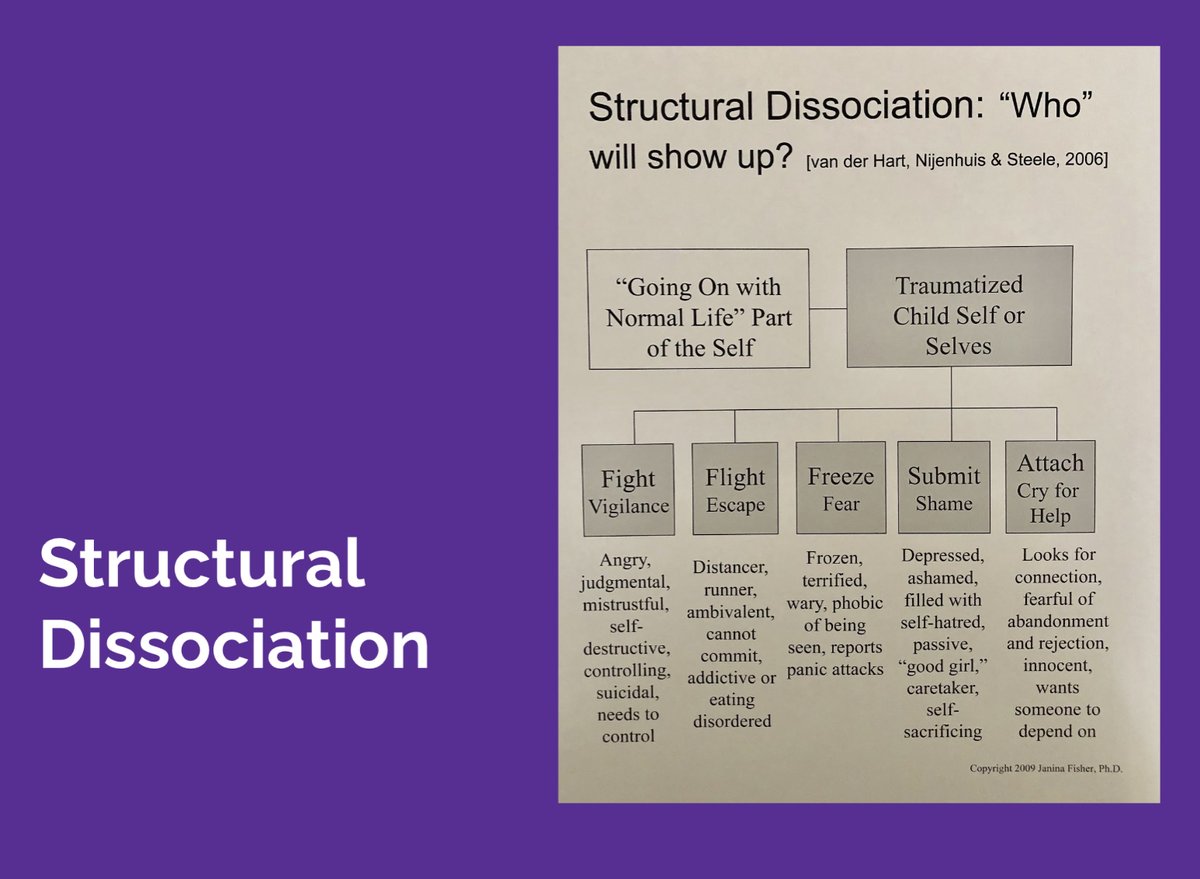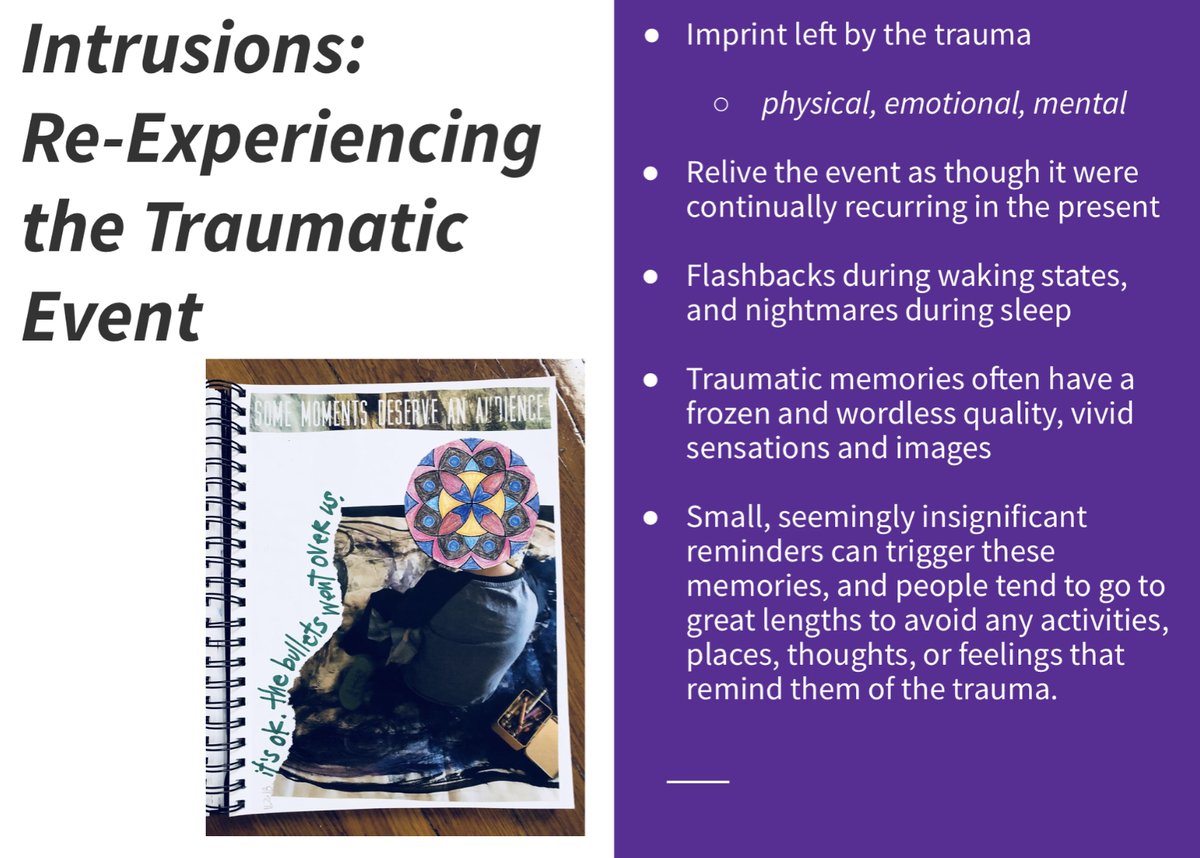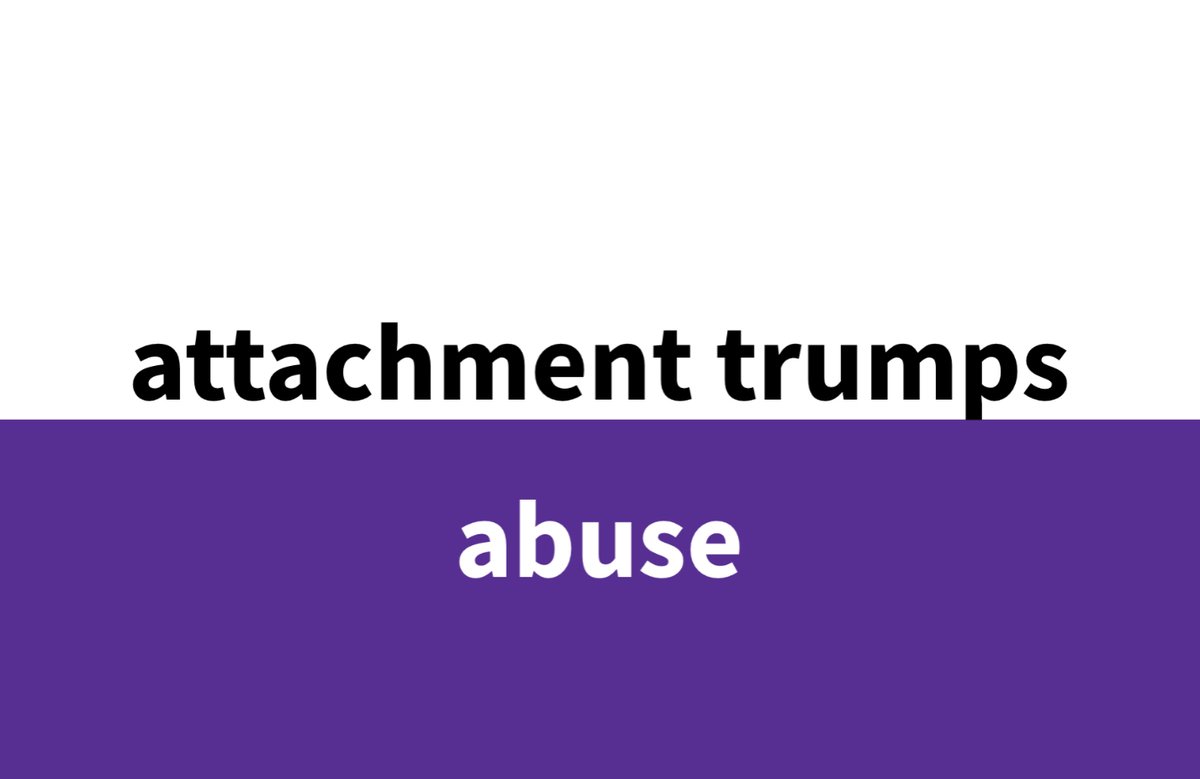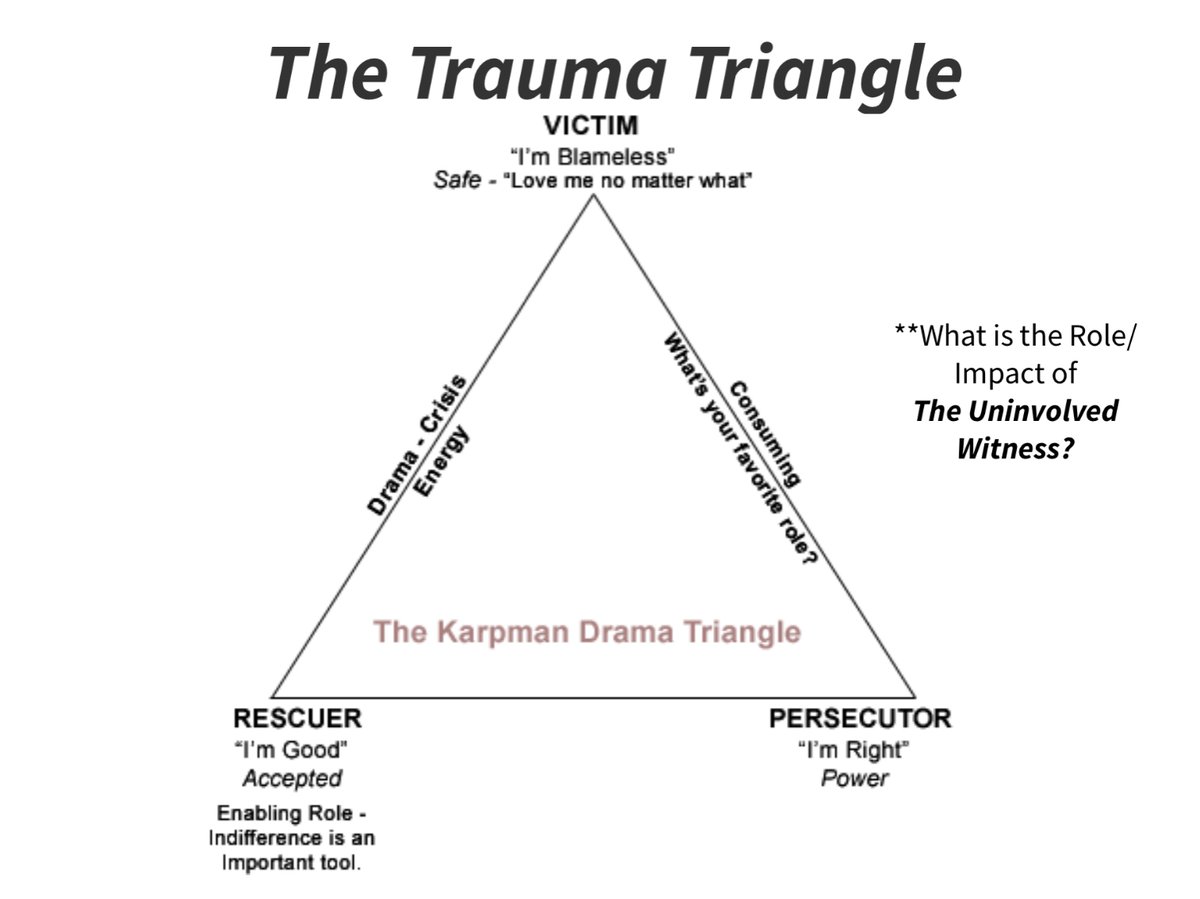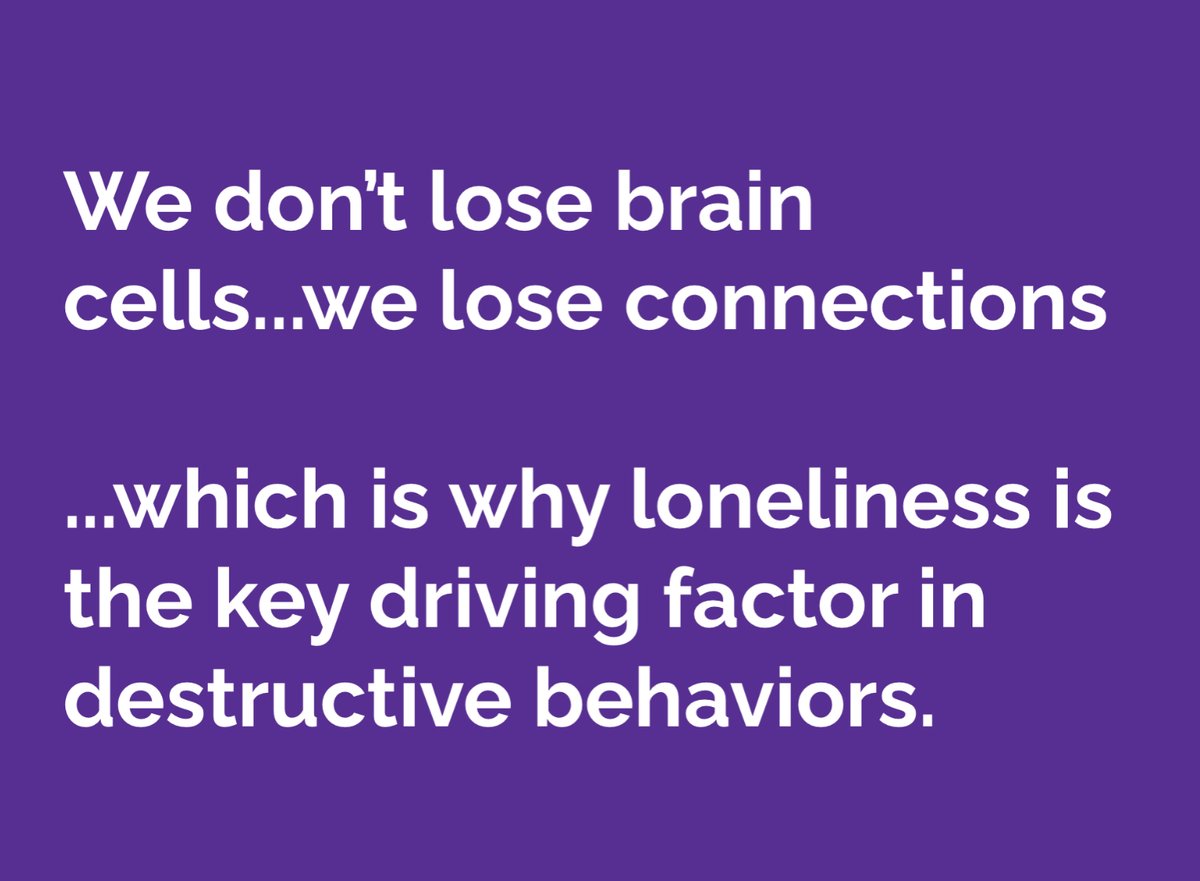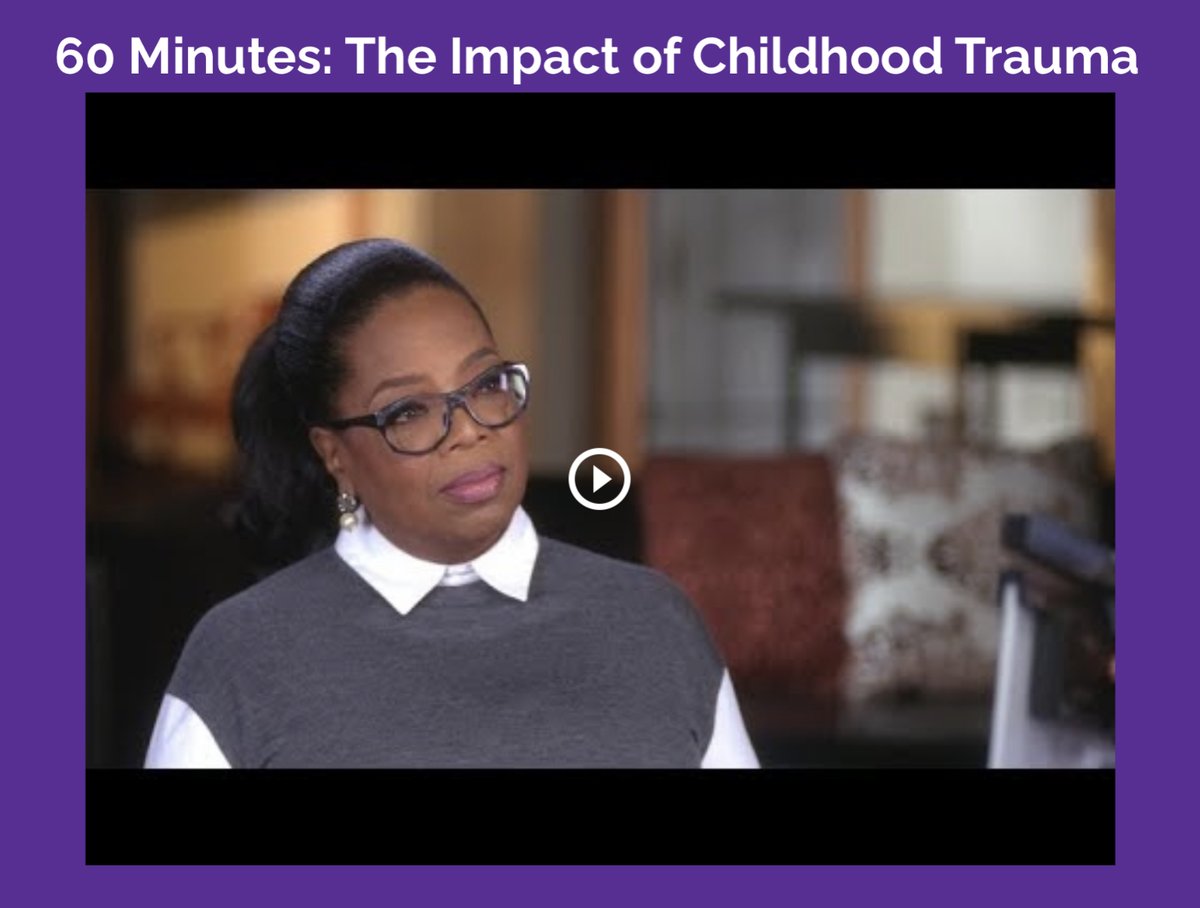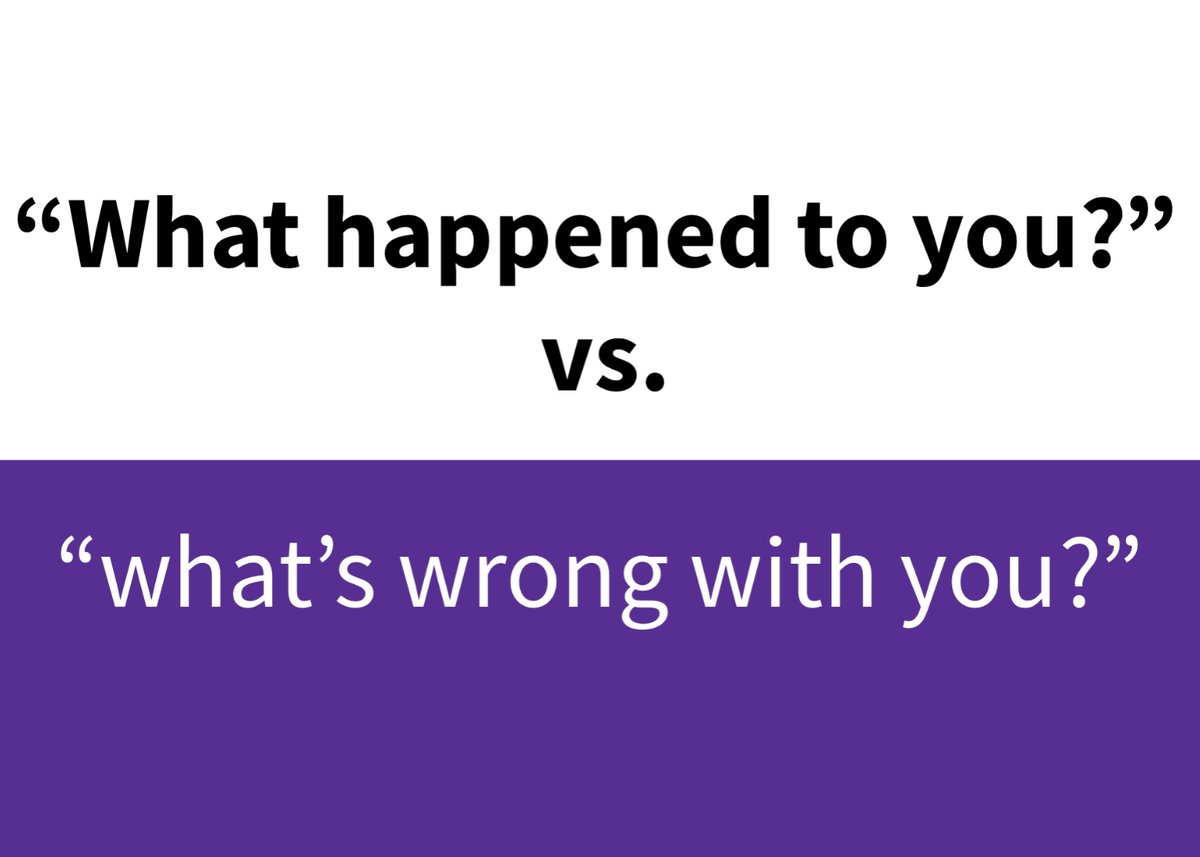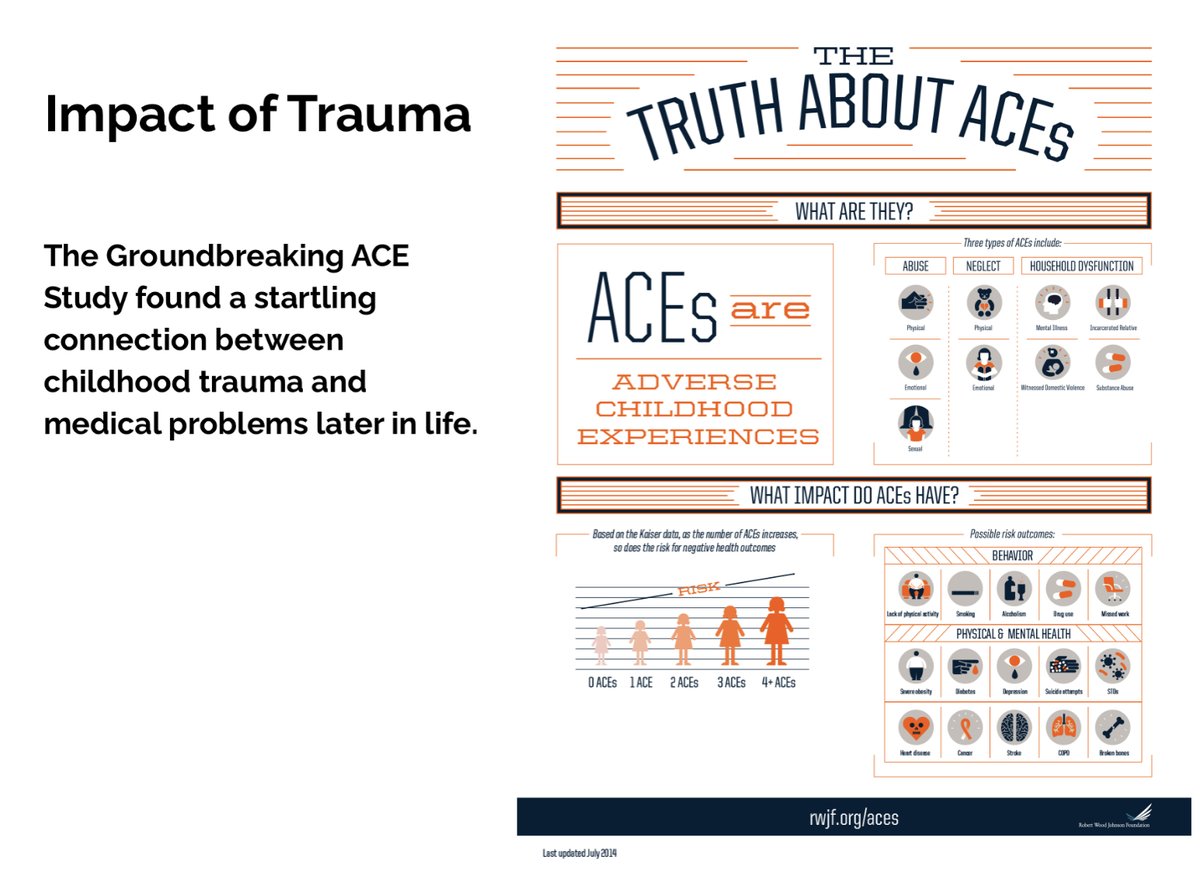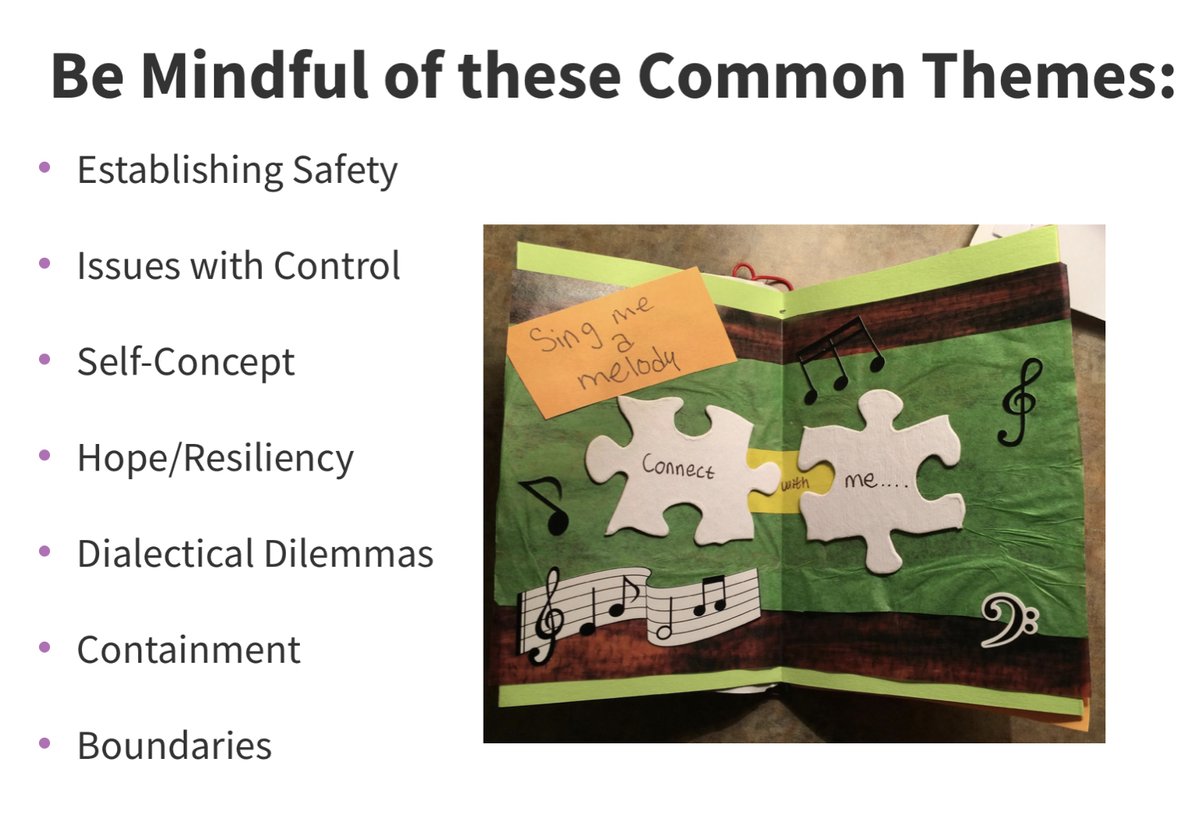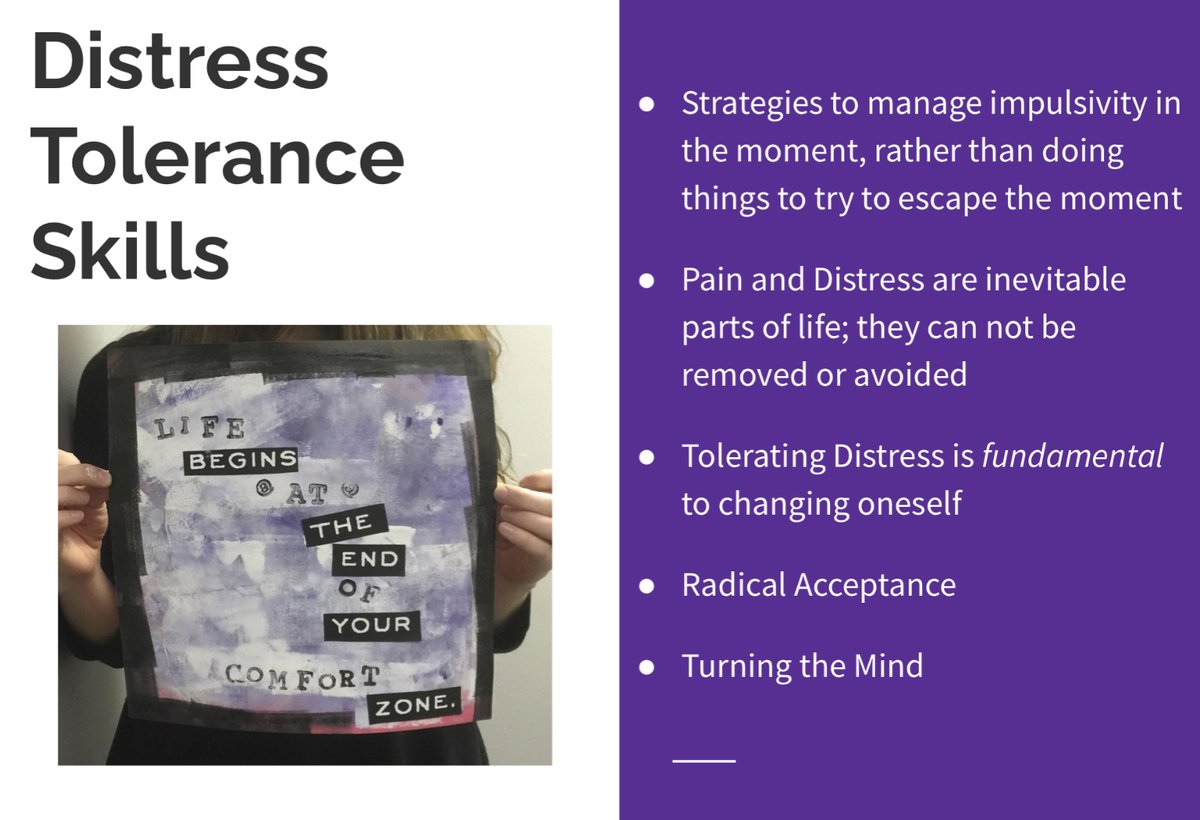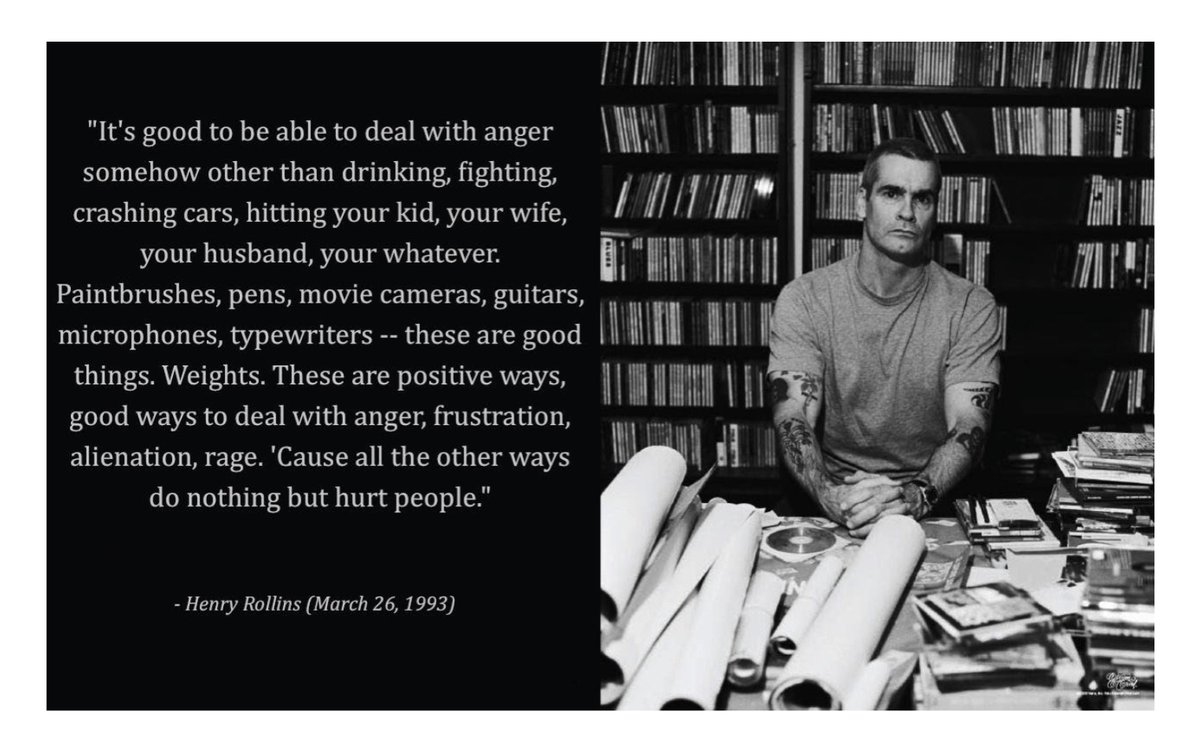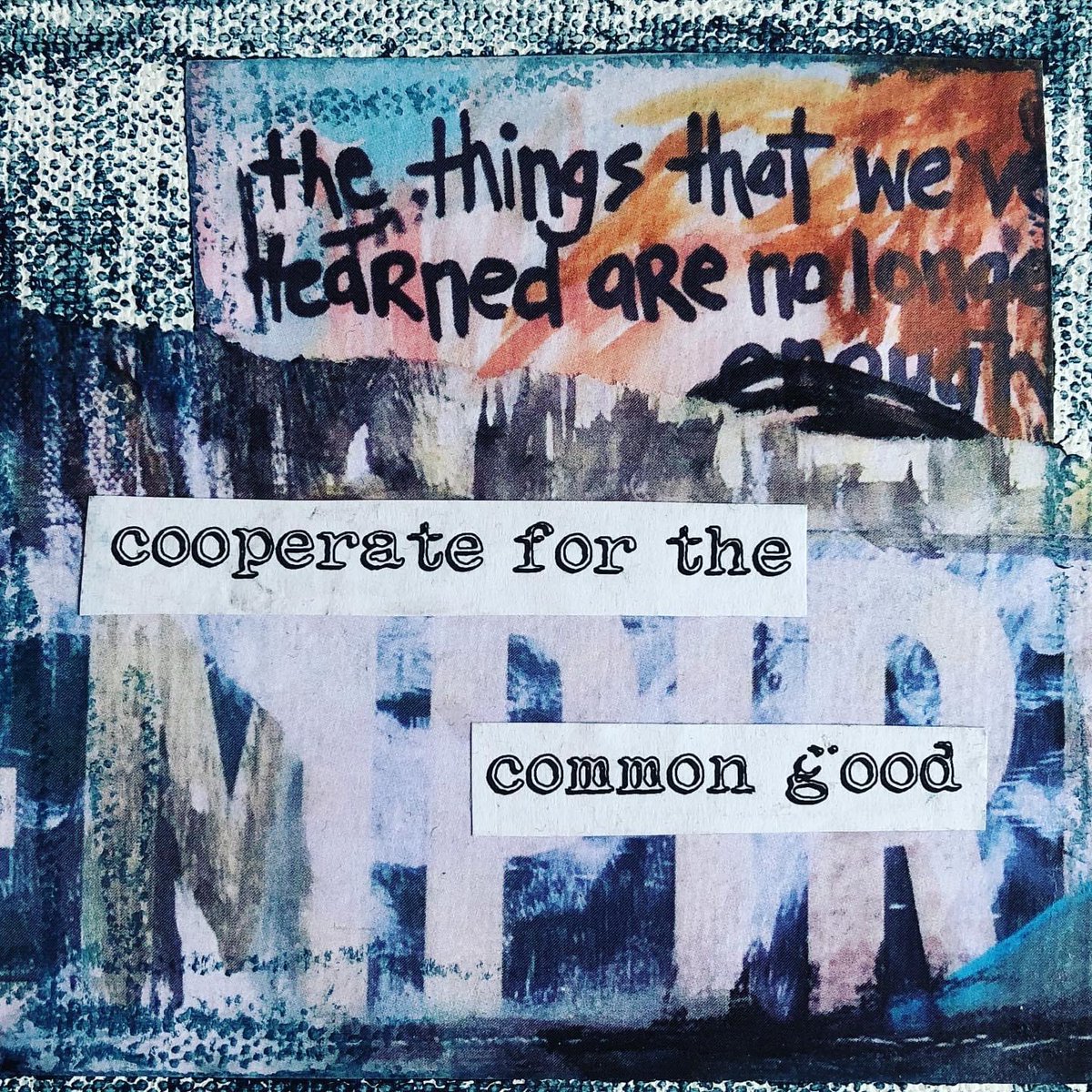Have you had trouble sleeping lately? Or maybe a little more moody than usual?
You're not alone.
No matter where your political allegiances lie, many of us are feeling out of sorts.
Current events can activate old traumas.
A crash course thread on #TraumaEd101 : 1/
You're not alone.
No matter where your political allegiances lie, many of us are feeling out of sorts.
Current events can activate old traumas.
A crash course thread on #TraumaEd101 : 1/
We tend to think of trauma as something horrific, but it doesn't have to be.
It can be a single event, an ongoing relationship where boundaries are violated & exploited, a death of a loved one, or a life situation such as housing or food insecurity.
#TraumaEd101 2/
It can be a single event, an ongoing relationship where boundaries are violated & exploited, a death of a loved one, or a life situation such as housing or food insecurity.
#TraumaEd101 2/
What really defines trauma is the way our body reacts to a situation, not the situation itself.
It's important to remember that when our body senses danger it goes into survival mode. Chemicals are released to help our body take the action it needs to NOT DIE.
#TraumaEd101 3/
It's important to remember that when our body senses danger it goes into survival mode. Chemicals are released to help our body take the action it needs to NOT DIE.
#TraumaEd101 3/
But what if we are unable act? Those chemicals fire anyway.
Ever almost get into a car accident? That tingly feeling in your body is those unused chemicals floating around.
When you have this trauma response over & over it impacts everyday functioning.
#TraumaEd101 4/
Ever almost get into a car accident? That tingly feeling in your body is those unused chemicals floating around.
When you have this trauma response over & over it impacts everyday functioning.
#TraumaEd101 4/
Traumatic memories are stored in the body, in encoded preverbal places, but they are kept out of conscious thought through a process called DISSOCIATION.
Sensory experiences can bypass consciousness and trigger trauma memories, especially through smell.
#TraumaEd101 5/
Sensory experiences can bypass consciousness and trigger trauma memories, especially through smell.
#TraumaEd101 5/
When we are unable to act in the way that our body is SCREAMING to act, our bodies/minds develop new ways to cope/survive.
In relational trauma, we are unable to act because the other person has authority or is responsible for our survival, such as a caregiver.
#TraumaEd101 6/
In relational trauma, we are unable to act because the other person has authority or is responsible for our survival, such as a caregiver.
#TraumaEd101 6/
Early trauma from a caregiver creates an unstable & unpredictable sense of self that is a result of individuals looking to others for cues on how to feel, think, or act, rather than being able to stay in touch with themselves & rely on their own internal compass.
#TraumaEd101 7/
#TraumaEd101 7/
The world we live in is not set up to acknowledge pain and suffering–there is no space for it. We expect everyone, children included, to follow the rules, no matter what.
Our systems fail to account for how developmental trauma gets in the way of learning.
#TraumaEd101 8/
Our systems fail to account for how developmental trauma gets in the way of learning.
#TraumaEd101 8/
Developmental trauma can stunt emotional growth.
Whether it's a singular event or an ongoing traumatic relationship or life situation, this has a profound impact on our ability to learn the nuances of these valuable social skills throughout our entire lifespan
#TraumaEd101 9/
Whether it's a singular event or an ongoing traumatic relationship or life situation, this has a profound impact on our ability to learn the nuances of these valuable social skills throughout our entire lifespan
#TraumaEd101 9/
It's important to remember that safety and survival are ALWAYS the first goal. If we are not safe, then we cannot thrive. https://www.simplypsychology.org/maslow.html
If we do not feel safe, we will exist in a state of constant hyper (or hypo) vigilance.
#TraumaEd101 10/
If we do not feel safe, we will exist in a state of constant hyper (or hypo) vigilance.
#TraumaEd101 10/
Feeling unsafe can have a direct effect on the physical structure and development of our brains.
Brains aren't just born, they're built over time.
#TraumaEd101 11/
Brains aren't just born, they're built over time.
#TraumaEd101 11/
Our brains develop from back to front. Our brain stem is our "reptilian brain"-it controls our basic automatic life functions.
The last part of our brain to develop is our frontal lobe,in the early 20's.
When trauma happens, our frontal lobes "go offline"
#TraumaEd101 12/
The last part of our brain to develop is our frontal lobe,in the early 20's.
When trauma happens, our frontal lobes "go offline"
#TraumaEd101 12/
How do we "fix" developmental trauma?
One idea is the Neurosequential Model of Therapeutics™ (NMT), created by Dr. Bruce Perry- a developmentally sensitive, neurobiologically informed approach.
https://www.childtrauma.org/
#TraumaEd101 13/
One idea is the Neurosequential Model of Therapeutics™ (NMT), created by Dr. Bruce Perry- a developmentally sensitive, neurobiologically informed approach.
https://www.childtrauma.org/
#TraumaEd101 13/
NMT integrates a comprehensive "bottom-up" community-based theory. The process helps match the nature/timing of specific therapeutic techniques to the stage of developmental when trauma occured.
CBT, an often-used treatment, uses a top-down, logic-based method
#TraumaEd101 14/
CBT, an often-used treatment, uses a top-down, logic-based method
#TraumaEd101 14/
Our early traumatic experiences disrupt our neurological, emotional, social, and cognitive development.
These experiences create a filter which colors the way we see the world as adults.
#TraumaEd101 15/
These experiences create a filter which colors the way we see the world as adults.
#TraumaEd101 15/
We have learned through science that the brain holds things from our conscious memory to protect us so we can go about our daily life.
Often people dissociate themselves from their own pain because it's not safe to truly acknowledge that pain as our own.
#TraumaEd101 16/
Often people dissociate themselves from their own pain because it's not safe to truly acknowledge that pain as our own.
#TraumaEd101 16/
Understanding dissociation is KEY to understanding how old traumas impact us in the here and now.
While dissociation may sound like something "bad" or "scary" it's actually quite a helpful and effective tool.
#TraumaEd101 17/
While dissociation may sound like something "bad" or "scary" it's actually quite a helpful and effective tool.
#TraumaEd101 17/
If all we thought about was our pain from the past we would never get anything done.
Dissociation is key to our survival.
#TraumaEd101 18/
Dissociation is key to our survival.
#TraumaEd101 18/
When we experience more than one major trauma, the traumatized part of our memory needs to get a little creative & dissociates even further from our daily conscious thoughts.
It's important to remember that this is done automatically in our brains for survival
#TraumaEd101 19/
It's important to remember that this is done automatically in our brains for survival
#TraumaEd101 19/
But what happens when there is ongoing and/or complex trauma?
In order to keep the painful memories from invading our conscious thoughts the superpower of dissociation needs to work a little harder.
#TraumaEd101 20/
In order to keep the painful memories from invading our conscious thoughts the superpower of dissociation needs to work a little harder.
#TraumaEd101 20/
Remember, these dissociative "superheroes" are here to protect us and keep us safe.
Whenever we get overwhelmed and unable to function, they show up on the scene to save the day.
#TraumaEd101 21/
Whenever we get overwhelmed and unable to function, they show up on the scene to save the day.
#TraumaEd101 21/
These triggers that activate feelings and memories from the past can show up when we least expect it.
We are sometimes confused when it happens because the superpower of dissociation had worked to create amnestic barriers from the painful trauma memories.
#TraumaEd101 22/
We are sometimes confused when it happens because the superpower of dissociation had worked to create amnestic barriers from the painful trauma memories.
#TraumaEd101 22/
Dissociation also works to keep us in relationships.
As human beings we are the only animals where social connection is needed for survival. For instance, an infant still needs a connection with a caregiver for food & shelter, even if that person is abusive.
#TraumaEd101 23/
As human beings we are the only animals where social connection is needed for survival. For instance, an infant still needs a connection with a caregiver for food & shelter, even if that person is abusive.
#TraumaEd101 23/
So what can we do now?
Step back & take a new view.
Changing our perspective can bring awareness of the past, which can be particularly helpful in understanding trauma & navigating the nuances of in/between roles & situations where multiple realities coexist.
#TraumaEd101 24/
Step back & take a new view.
Changing our perspective can bring awareness of the past, which can be particularly helpful in understanding trauma & navigating the nuances of in/between roles & situations where multiple realities coexist.
#TraumaEd101 24/
As a society, we are at a critical mass of unacknowledged pain.
There is a dire need to become brave enough to safely explore our traumas, yet we also need to de-stigmatize emotional expression.
We feel alone in our struggle & are crying out for connection.
#TraumaEd101 25/
There is a dire need to become brave enough to safely explore our traumas, yet we also need to de-stigmatize emotional expression.
We feel alone in our struggle & are crying out for connection.
#TraumaEd101 25/
So instead of calling someone "crazy" or asking the kid in your class why he can't pay attention or get his homework done...or why that loved one of yours fell into the QAnon rabbit hole...
Try to understand what might have happened along the their way
#Trauma101 27/
Try to understand what might have happened along the their way
#Trauma101 27/
We are finding more and more that trauma during childhood has a direct impact on medical problems in adulthood. Check out the groundbreaking ACE study on Adverse Childhood Experiences. https://www.cdc.gov/violenceprevention/aces/index.html
#TraumaEd101 28/
#TraumaEd101 28/
This can be *ALOT* to take in all at once.
You may be skeptical or think I'm full of shit.
That's totally fine.
I just ask that you keep an open mind and pay careful attention to staying safe and moving slowly as you question and explore.
#TraumaEd101 29/
You may be skeptical or think I'm full of shit.
That's totally fine.
I just ask that you keep an open mind and pay careful attention to staying safe and moving slowly as you question and explore.
#TraumaEd101 29/
It's also important to find ways to tolerate the distress of frustration of the current moment, but even more important to know when you need to step away and take a break.
Here are some helpful resources: https://www.dbtofsouthjersey.com/resources
https://www.dbtofsouthjersey.com/level-6-blog
#TraumaEd101 30/
Here are some helpful resources: https://www.dbtofsouthjersey.com/resources
https://www.dbtofsouthjersey.com/level-6-blog
#TraumaEd101 30/
Be kind to yourself.
Find a creative outlet. Heck, find more than one.
Rest when you need to. Let the dishes sit for a day if you need to. Or clean the dishes if you need to feel like you accomplished something.
Reach out to a friend if you need to chat.
#TraumaEd101 31/
Find a creative outlet. Heck, find more than one.
Rest when you need to. Let the dishes sit for a day if you need to. Or clean the dishes if you need to feel like you accomplished something.
Reach out to a friend if you need to chat.
#TraumaEd101 31/
Stress & Shame are powerful states of being. They can get really loud & overwhelming.
We need to make room in our lives & our society for pain. For discomfort. For darkness.
It’s always there & it will always be there.
We've got quite a bit of work to do.
#TraumaEd101 32/
We need to make room in our lives & our society for pain. For discomfort. For darkness.
It’s always there & it will always be there.
We've got quite a bit of work to do.
#TraumaEd101 32/
Looking for more help or resources? Start here: https://thethinkinproject.com/ and follow @projectthinkin
#TTP #TraumaEd101
#TTP #TraumaEd101

 Read on Twitter
Read on Twitter